In Manica: ADRA Launches School Feeding Project For Five (5) Primary Schools In Sussundenga District
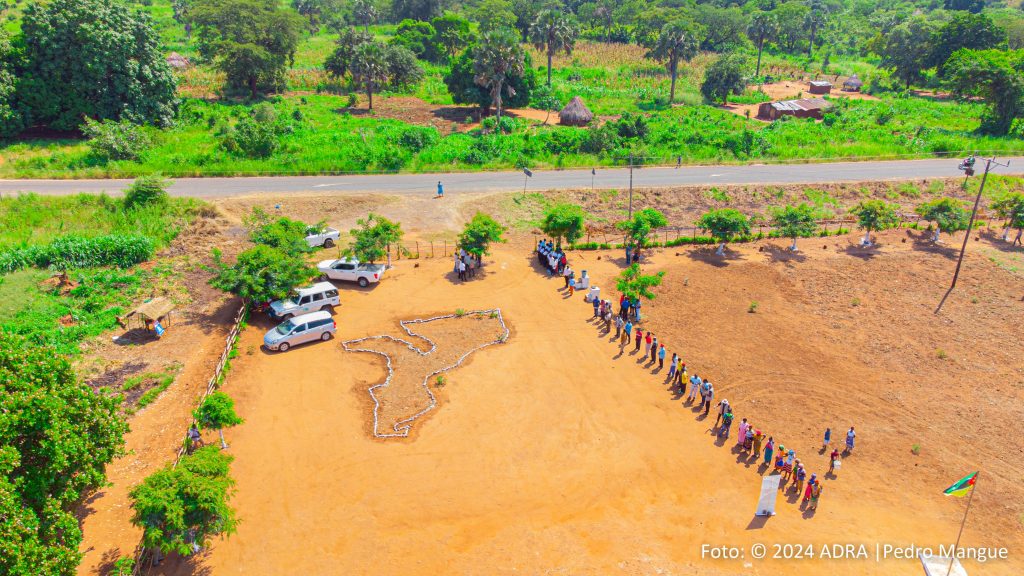
The project was officially launched this Thursday, March 14, with the aim of improving the nutritional status of schoolchildren as well as ensuring their retention in school and will cover around three thousand three hundred and fifty-four pupils from five (5) elementary school in the district of Sussundenga.
The ceremony, which took place at Machir Primary School, in the Dombe Administrative Post in Sussundenga, one of the schools benefiting from this project, was presided over by the Sussundenga District Administrator, Tomás Razão, who officially carried out the act.
On the occasion, Razão assured those present that: "the implementation of this program will contribute positively to the reduction of chronic malnutrition and will significantly contribute to the retention of students in school, and therefore improve their educational performance" he said.
On the other hand, ADRA Mozambique's Director of Programs, Vicente Adriano, stressed that this is an integrated program that will cross over with the Nature + project, already underway in the buffer zone of the Chimanimani National Park, and reiterated that
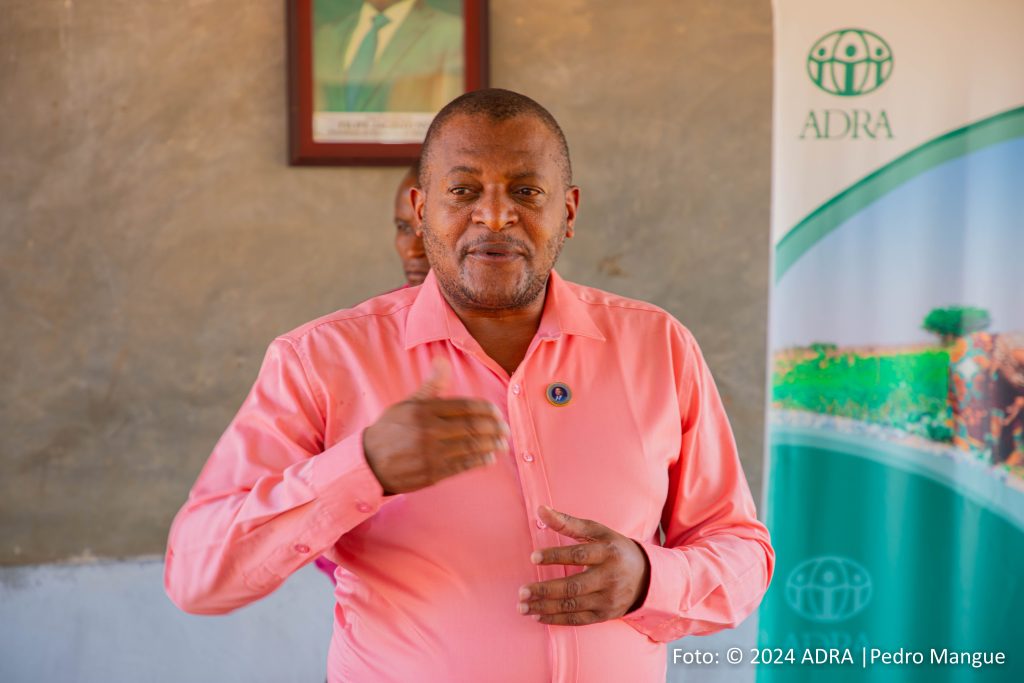
that it aims to ensure greater adherence and retention of children in school.
During his speech, Adriano added that: "this program integrates several components (...) the components
dand school production, business initiatives, among others. In the field of agriculture, the project will promote school gardens, the allocation of inputs, training and the creation of savings groups..." he said.
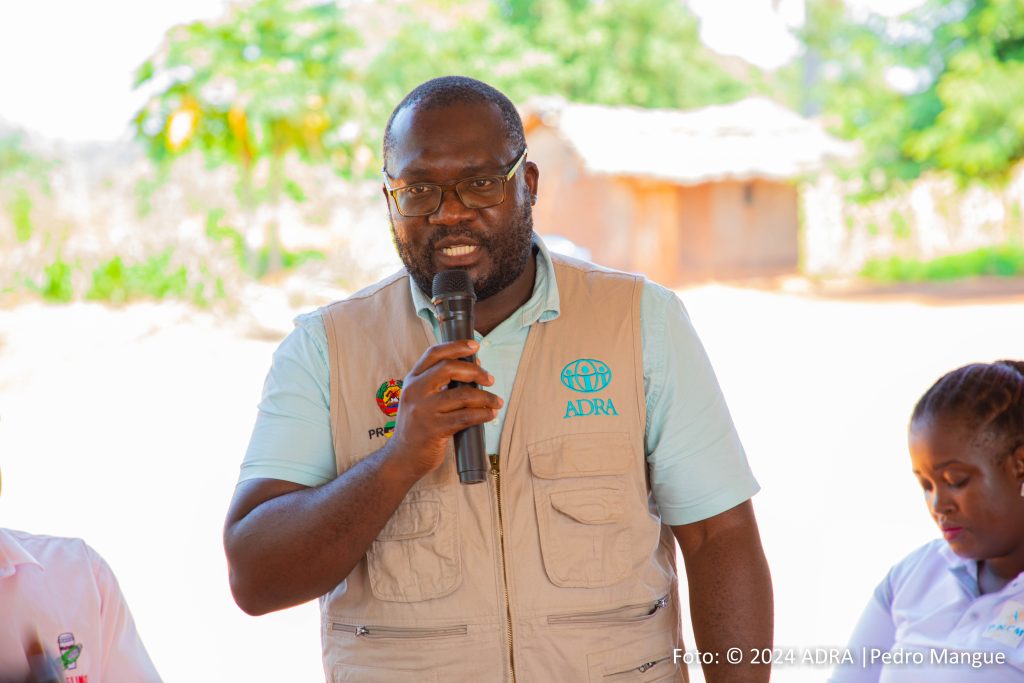
At another point, the Administrator of Chimanimani National Park, Leonel Messicame, who was also present, said that "Chimanimani National Park sees this program as a "school workshop", in that in addition to providing school lunches, it will intercede with other environmental education programs" he said.
Looking at all the components that make up this school feeding project, the Head of Service
District of Education, Youth and Technology (SDEJT) of Sussundenga, Chico Ferrão, also pointed out that "As a sector, education feels valued for its continued ability to attract partnerships, and stressed that the sector will use this opportunity as an element that will boost the teaching and learning process" said Ferrão.
It should be noted that the implementation of the School Feeding project in the District of Sussundenga is the result of the progression of the Boane School Feeding project.
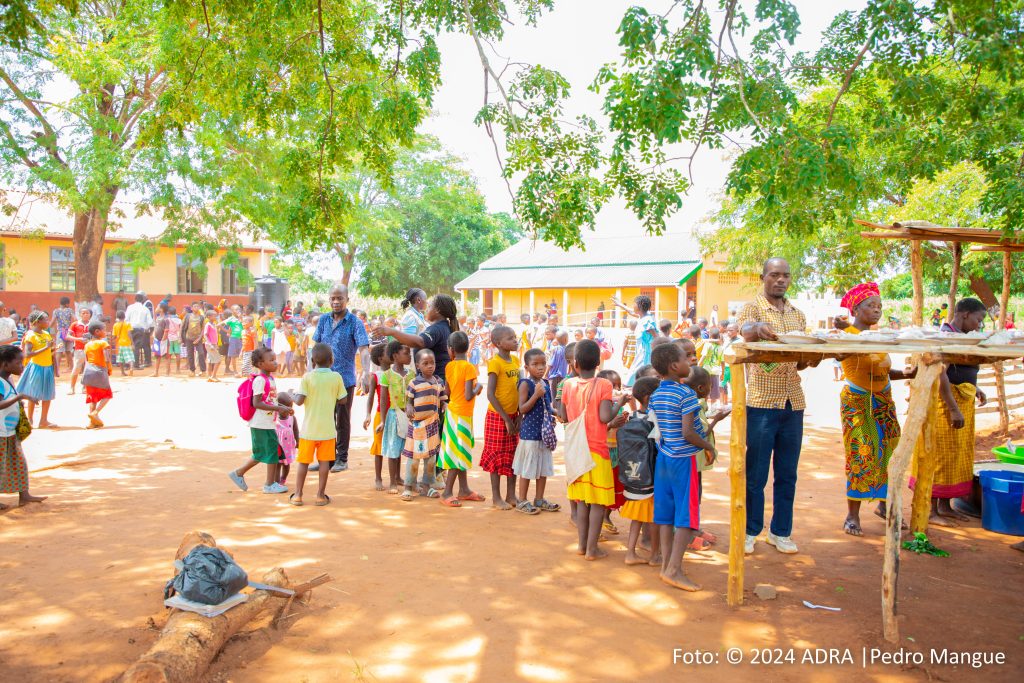
which benefited more than 7,400 pupils from 19 elementary school in that district at Maputo province level, implemented by ADRA Mozambique from 2017 to 2024.
In Sussundenga, the project is being implemented in five (5) elementary school in the Dombe and Rotanda Administrative Posts, namely Machir and Sanguene Primary Schools and Javera, Amílcar Cabral and Messambúzi Primary Schools.
ADRA, CFGB and the Micaia Foundation, in partnership with the Chimanimani National Park, officially launch the Nature + Project in Sussundenga
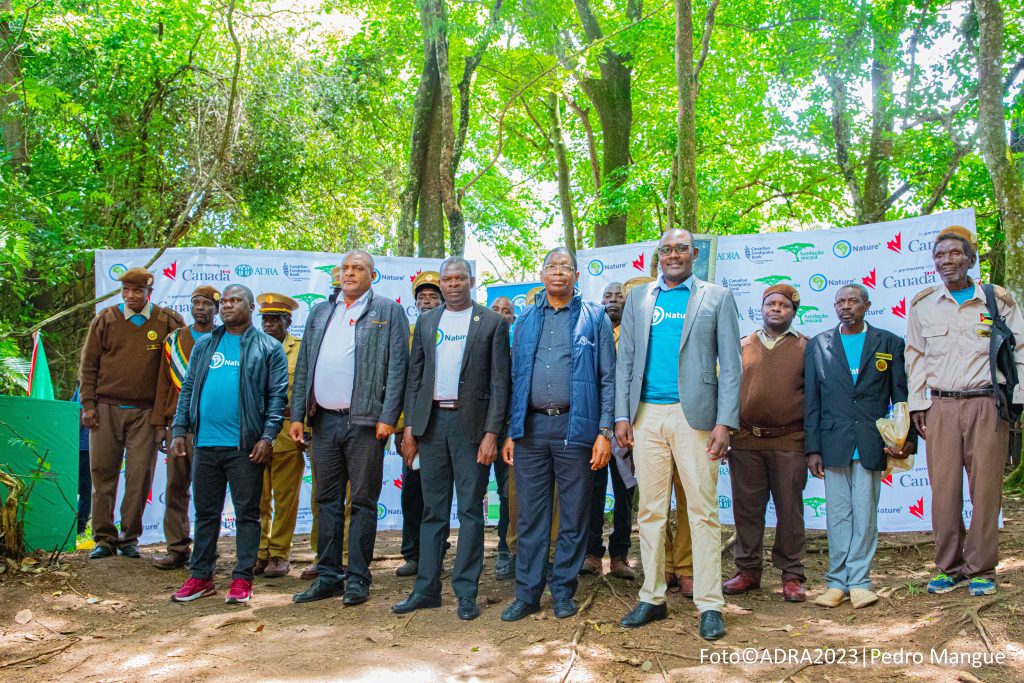
This is a three-year project, funded by the Government of Canada, which aims to help improve low-carbon and climate-resilient economies in the buffer zone of Maputo National Park, specifically in the communities of Muôco, Mpunga, Rotanda-Sede and Mussapa, through an approach called "nature-based solutions".
The event took place yesterday, December 20, and was attended by various provincial and district government figures, including the Chairman of the Board of Directors of ADRA Mozambique and representatives of its local implementing partner, the Micaia Foundation.
During the launch festivities, the Director of the Manica Provincial Service for Economic Activities, Agostinho Robate, representing the Secretary of State in Manica Province, who officially launched the project, said on the occasion that the Nature + project is a project with unique and relevant interventions for the communities, and said that it means "a step" for the development and well-being of the targeted communities.
Róbate continued and reiterated that "Climate change can affect our health and our ability to grow crops. Hence, the launch of the project aims to respond to these challenges, but also to improve the income and resilience of those targeted" he said.
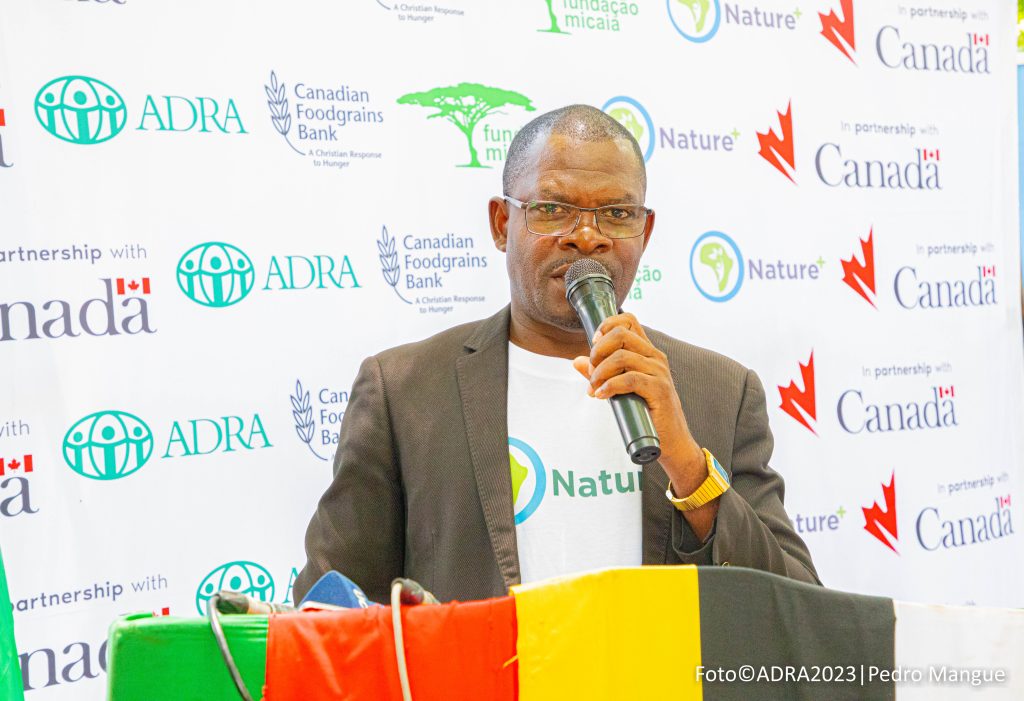
On another occasion, the Chairman of ADRA's Board of Directors, Pastor Alfredo Chilundo, stated in his speech that:
"With the Nature + project, ADRA and the Micaia Foundation hope to respond to the most worrying climate challenges, including the implementation of conservation agriculture, improving market access and increasing beekeeping, agro-forestry, water management, as well as the conservation of beautiful landscapes and the restoration of degraded areas." he said.
On the other hand, the beneficiaries of the Nature + project are pleased to have been selected for this intervention and stress that:
"With conservation approaches, the project will change the way we live. We hope to practice smart agriculture, the kind that adapts to climate change." Fernando Mazia, beneficiary.
With the Nature + project, ADRA Mozambique hopes to contribute to the Conservation Agriculture approaches that include the methodologies of School in the Peasant's Field (EMC), and School in the Agricultural Market (EMA).

with a view to improving the sustainability of family farming and establishing market links between small producers and companies that supply agricultural inputs and sell agricultural surpluses.
The Micaia Foundation, on the other hand, will contribute to increasing beekeeping, ecotourism and the collection of non-timber forest products, including essential oils, mushrooms, teas, soap and other cosmetics.
based on local knowledge.
In addition to Mozambique, the Nature + project is also being implemented in three other African countries, namely Kenya, Ethiopia and Zimbabwe. In Mozambique, the project is being implemented by ADRA and the Micaia Foundation, in partnership with Chimanimani National Park, using funds from the Government of Canada, in a consortium led by the Canadian Foodgrains Bank.
"We've already managed to restore 32 hectares of Mangal", says Cristina Vontade, beneficiary of the ZIREF project in Maganja da Costa
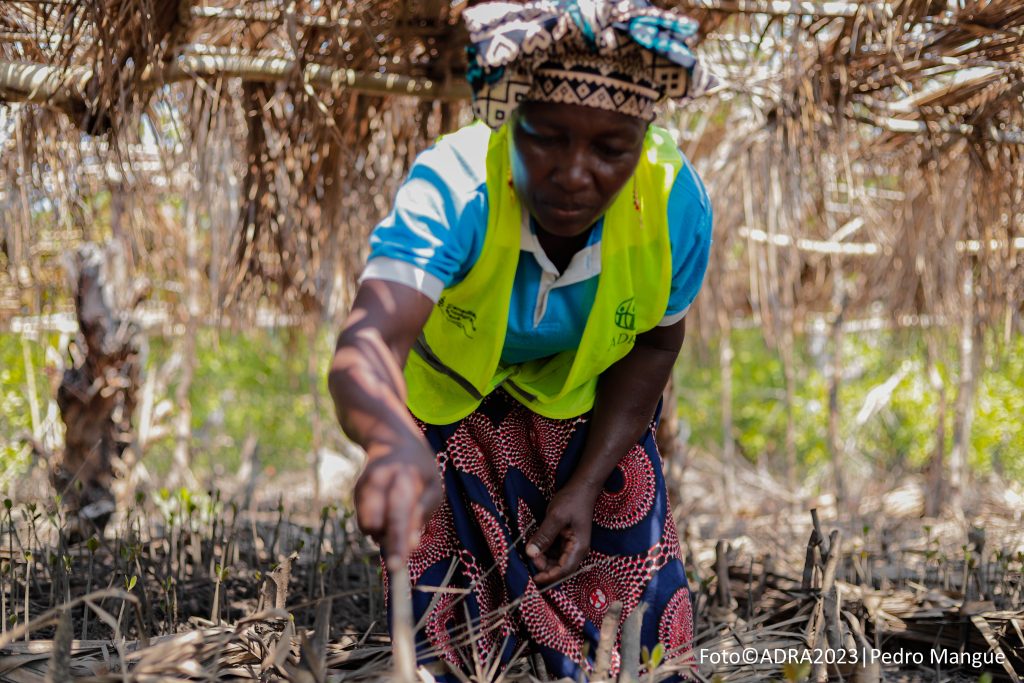
Cristina Vontade (50 years old), mother of 3 children, 2 girls and 1 boy, lives in Bairro Nanene, Posto Administrativo Sede Bala, in the district of Maganja da Costa. She tells us the sad and happy story of the degradation and restoration of the Mangal in Nanene, in the district of Maganja da Costa:
"We residents of the Nanene community were the ones who destroyed the mangrove to exploit the cuttings, but when we saw that the mangrove was disappearing, we had our own initiative to re-establish the mangrove, but we didn't succeed because we didn't have any technique." Cristina explained.
The initiatives of ADRA Mozambique's ZIREF project, launched in September 2021 and focused on
two districts (Maganja da Costa and Mocuba) provided techniques for the use, conservation and restoration of Nanane mangroves in Maganja da Costa. The mangrove restoration component, in particular, involved a group of 80 volunteers, of whom Cristina is one, and today they are bearing positive witness.
"We had a hard time with floods and cyclones. Our crops would rot in our fields, because when the water came in, it would flood everything. Mbut when ADRA arrived, they taught us how to preserve and plant the mangrove, and so we were able to We have almost 32 hectares left and we have already finished part of it, and now we want to move on to the other bank." he stressed.
Cristina sees positive results and benefits from ADRA's efforts together with the community, and says that today she knows that the mangrove serves as a great protection against natural disasters. What's more, she stresses that she will not allow anyone to destroy the mangrove forest.
"The benefits of this project are that we now know how to conserve and plant mangroves. In the past we used to cut down the mangroves uncontrollably. Mbut now that we've restored, even when the rain falls, it doesn't cover us, because
ahe mangrove trees protect us." I said.
Given the ongoing efforts, Cristina stressed that although the 35.2 hectares planned by the ZIREF project have been reached, the Nanene community also intends to embark for the other shore in order to continue the action, but in the meantime they are asking for transport support.
"We have already finished restoring a good part of the project, but we intend to embark on the other shore, but we lack transportation, so we asked the project for help. He concluded.
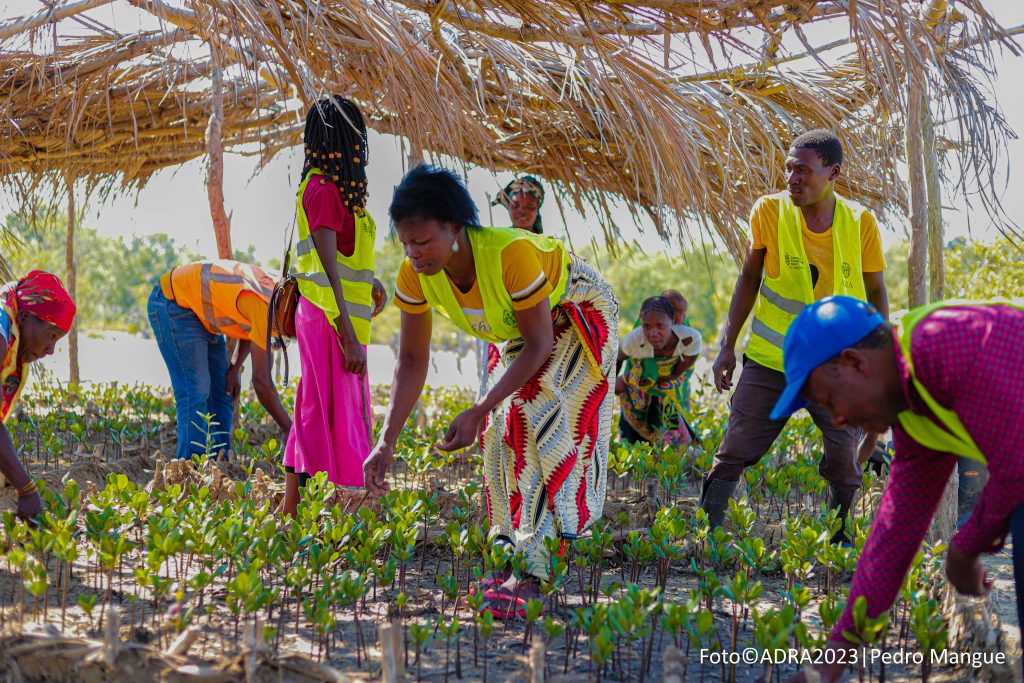
ADRA Mozambique has been implementing the ZIREF project since September 15, 2021. Part of this program is the restoration of 35.2 hectars of
Nanene mangrove forest, in the district of Maganja da Costa, of which 30 hectares have already been restored, with only 5.2 hectares left to restore.
"With ADRA's help, we were able to restore the Mangal," says Geraldo Julião, in Nanene, in the district of Maganja da Costa
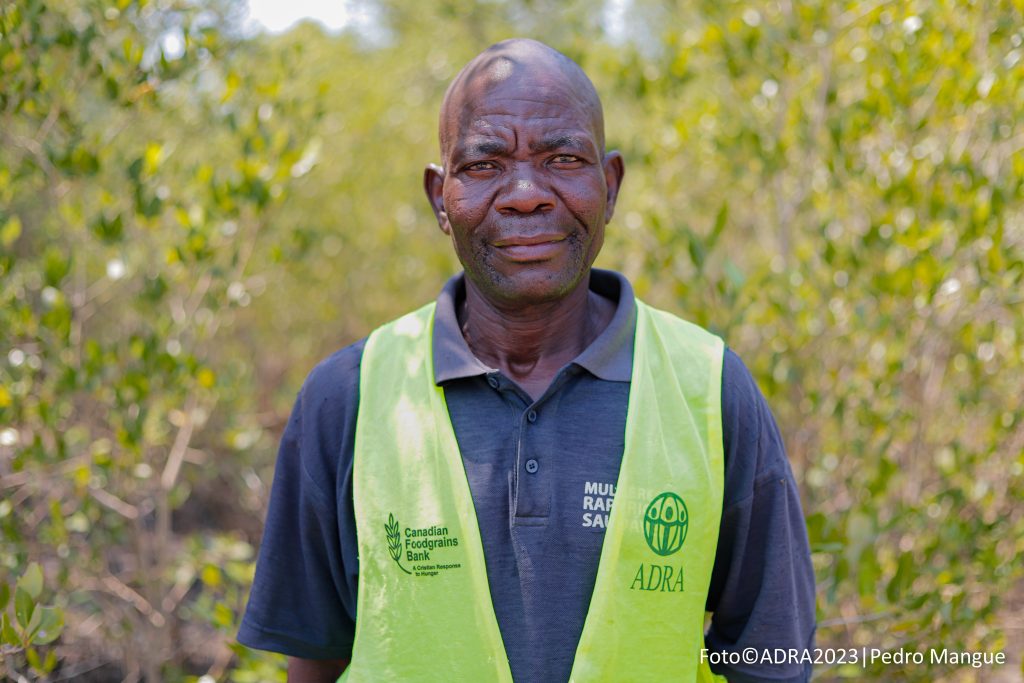
Geraldo Julião (49 years old) is the father of four children, two boys and two girls. Geraldo lives in Bairro de Nanene, in the town of Cabuir, Sede Bala Administrative Post, in the district of Maganja da Costa. His only source of income is subsistence farming.
Geraldo has been a member and beneficiary of the ZIREF project since October 2021, and is part of a school group in Machamba do Camponês (EMC) called "OPARELANA", which in Portuguese means "we are safe". This beneficiary tells us the incredible story of restoring the mangrove,
which ADRA, in coordination with the community of Bairro Nanene in Maganja da Costa, is carrying out as part of the ZIREF project
"Ance ADRA arrived here in our town, we used the mangroves in any way we could, and that's why we were prone to natural disasters (...) we used to cut down the mangroves to produce firewood and charcoal, as well as to build our houses. But little by little, we noticed that the mangroves were dying out, and the salt water began to invade our houses and our fields."Geraldo explained.
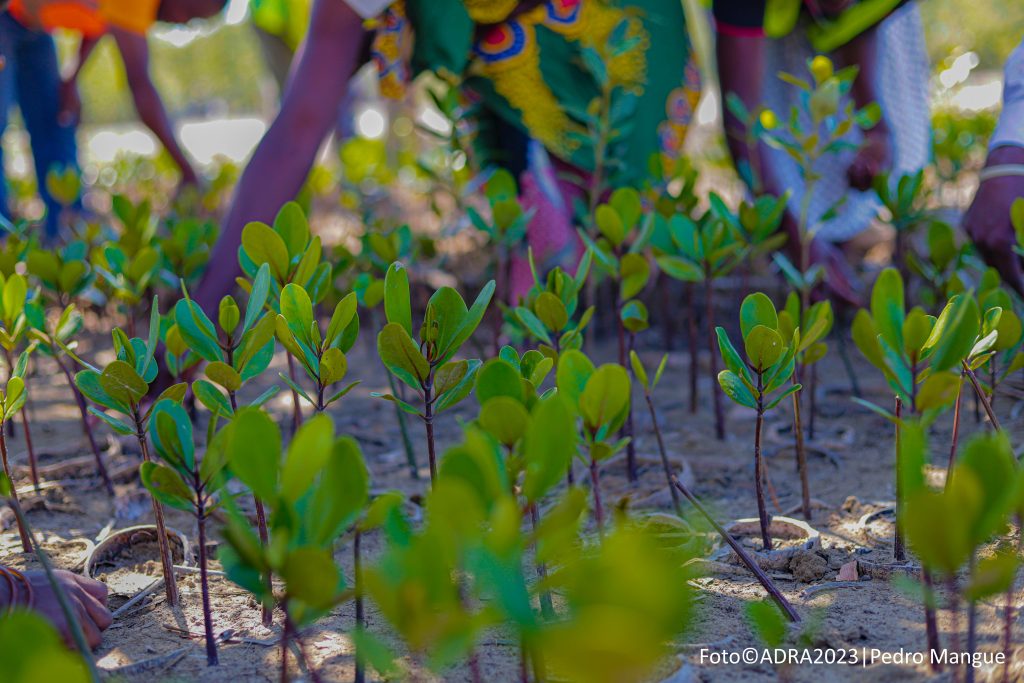
In the midst of the struggle between stopping the fury of the salt water and recovering the mangrove forest, there was a single objective: "to defend against any climatic eventuality". Geraldo points out that in addition to the irrational felling of the mangrove trees perpetrated by the local community of Nanene
there was also a group of companies that cut down the mangroves to dry the copra and produce coconut oil and soap, thus creating huge openings in the Nanene mangrove forest and leaving the community more vulnerable.
"It wasn't just the community that destroyed the mangrove, there were also some companies that came here and cut down the mangrove to dry copra, so the mangrove was completely destroyed.
E as a result, fWe are suffering from saltwater intrusion, cyclones and many other natural disasters." he said.
This beneficiary points out that with the support of ADRA and the joint efforts of the community, it has been possible to recover an area of 30 hectares of mangrove forest in Nanene, and today, the community is resilient to climate change.
"When ADRA arrived in 2021, they trained us in techniques for using and planting mangroves. From then on, we started producing mangrove seedlings in a greenhouse, and transplanted the trees in almost all the devastated areas, and so far we've managed to restore 30 hectares and most of the trees have grown. Today we are stronger, even this latest cyclone didn't hit us." He highlighted.

ADRA Mozambique, through the ZIREF project, funded by Foodgrains Bank, has been implementing the ZIREF project since September 15, 2021, targeting 1,250 small local farmers from the
districts of Mocuba and Maganja da Costa. Part of this program is the restoration of 35.2 hectares of Nanene mangrove forest, in the district of Maganja da Costa, of which 30h have already been restored, with only 5.2 hectares left to restore.
ADRA's water kiosks are now managed by the Municipality of Mocuba, Zambezia
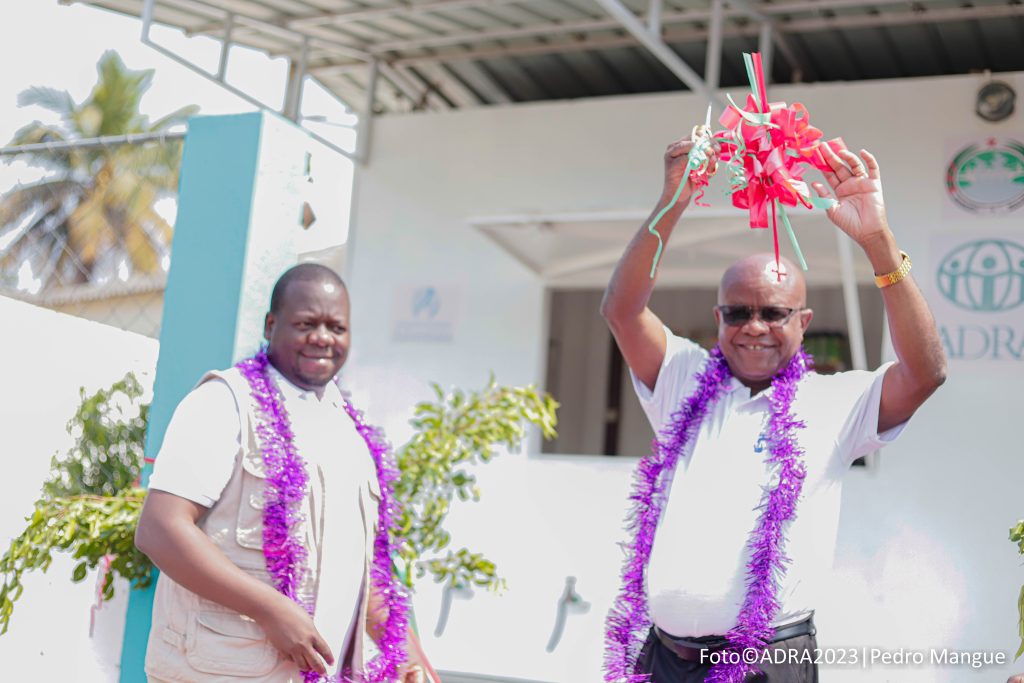
These are three water supply units built in 2017 as part of the implementation of ADRA's Water Kiosks project. These water supplies are located in the 25 de Setembro, CFM and Samora Machel neighborhoods on the outskirts of the city of Mocuba in Zambezia.
After six years of implementing the solar-powered water kiosks project, on September 21 ADRA Mozambique concluded the project and officially handed over the kiosks to the municipal authorities of the city of Mocuba.
The handover ceremony took place at the kiosk in Bairro 25 de Setembro, at which
which was attended by government authorities and other individuals including the Mayor of Mocuba, the Director of the District Planning and Infrastructure Service (SDPI), and the president of the Adventist Mission Union and the Northern Mission of the Adventist Church, as well as the National Director of ADRA, among other technicians.
On the occasion, the president of the Adventist Mission Union of Mozambique, Alfredo Chilundo, representing the Board of Directors of ADRA Mozambique, officially handed over the three drinking water supply systems to the municipal authorities of the city of Mocuba, and pointed out that:
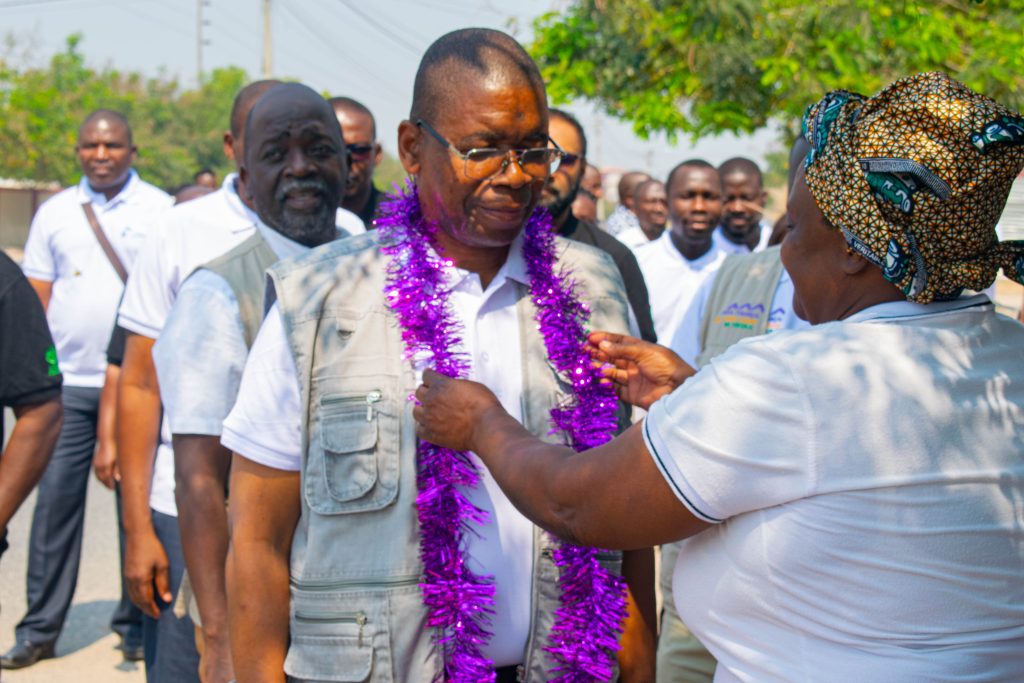
"O he objective of the water kiosks established by ADRA for peri-urban services is to increase the sustainable supply of safe and potable water, as well as the provision of Recargaki services and the provision of hygiene products to communities in the city of Mocuba, specifically in the neighborhoods of CFM, Samora Machel and 25 de Setembro. We would therefore like to thank all our main partners for identifying volunteers to form the management committees of the kiosks" said Chilundo.
For his part, the Mayor of Mocuba, Geraldo Sotomane, reiterated that the Water Kiosks Project is the result of initiatives
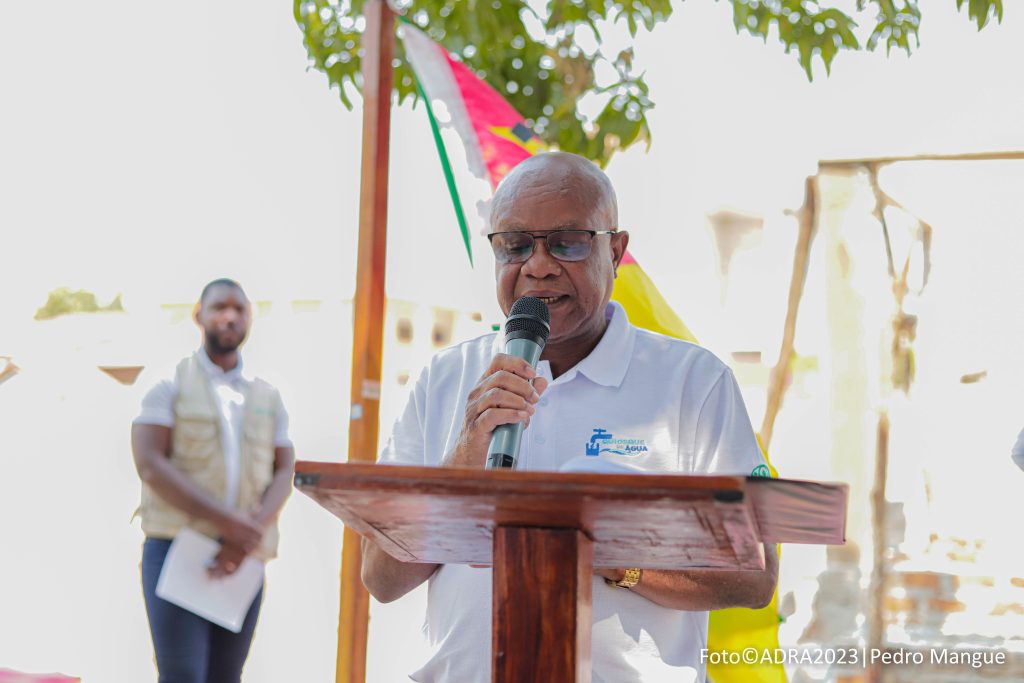
of the Mocuba local council in partnership with ADRA Mozambique, which has provided good individual and collective hygiene practices within the communities and stressed that:
"Os points The water systems that we are witnessing being delivered today have created an environment free of water-borne diseases, which are caused by the consumption of substandard water, and are a cause of death for people, especially children in our country and, in particular, in the city of Mocuba. We therefore call on all residents of the targeted neighborhoods to use
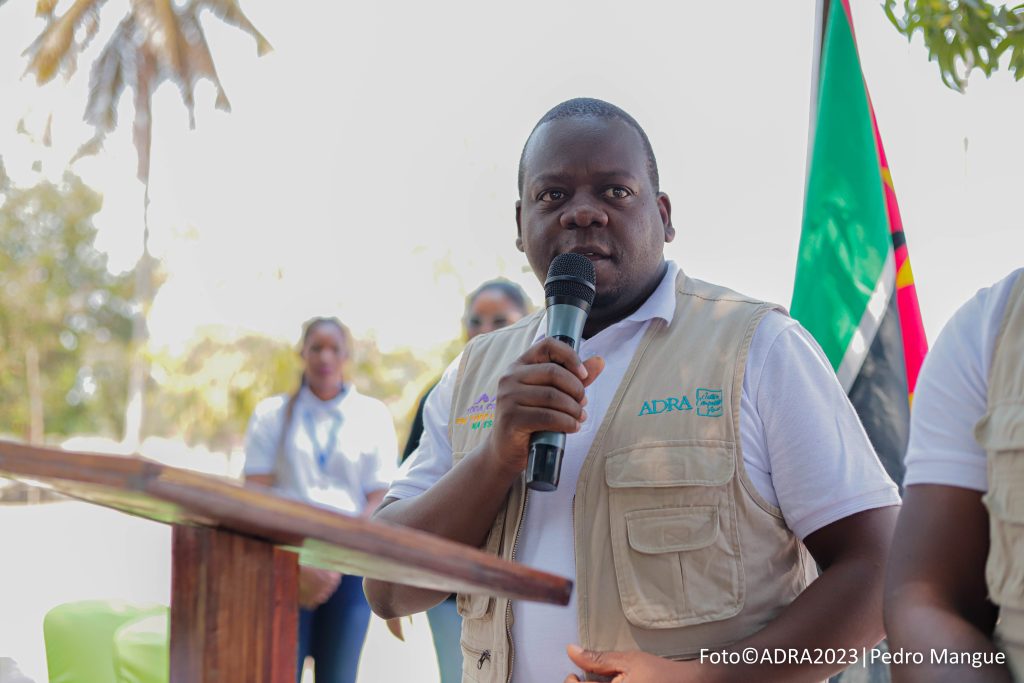
corect and rational dthese infrastructures, guaranteeing their conservation and contributing to the development of our municipality" Sotomane appealed.
On the same occasion, the National Director of ADRA Mozambique, David Masinde, pointed out that the Municipality of Mocuba and the Seventh-day Adventist Church have been strong allies in the implementation of ADRA's projects in that town, and called for strong joint and continuous collaboration with a view to achieving a common goal.
At another point, the Director of the Mocuba District Planning and Infrastructure Service (SDPI), Fernando Alilo, told our interview that this project of small water supply systems has boosted access to drinking water for the inhabitants of Mocuba:
"We know that access to water in our city is still a long way from achieving our goal of ensuring that everyone has access to this precious liquid.
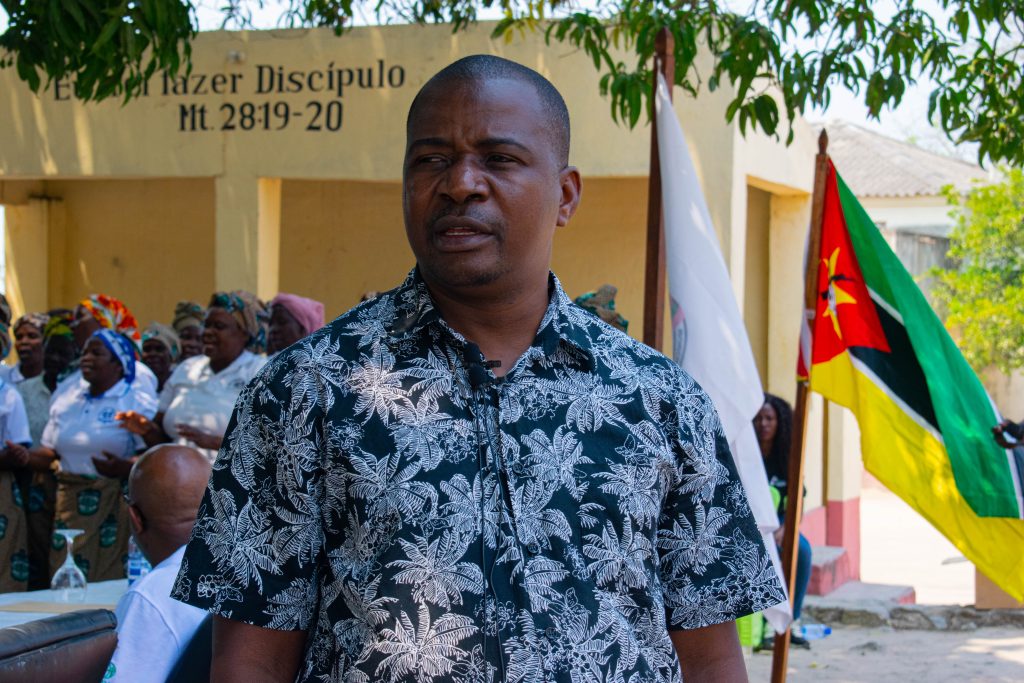
In However, with these pan partnership with ADRA and other partners, the government will gradually respond to the needs of our population. This action must be accompanied by the practice of hygiene and sanitation so that the communities are healthy" noted Alilo.
In another development, Alilo praised the initiative, saying that "The management of these systems is now handed over to the population, and we know that these individuals selected to manage the Kiosks have been trained and qualified by ADRA. They are therefore equipped with the knowledge that will ensure that there is sustainable financial management to guarantee the sustainability of the Kiosks." concluded.
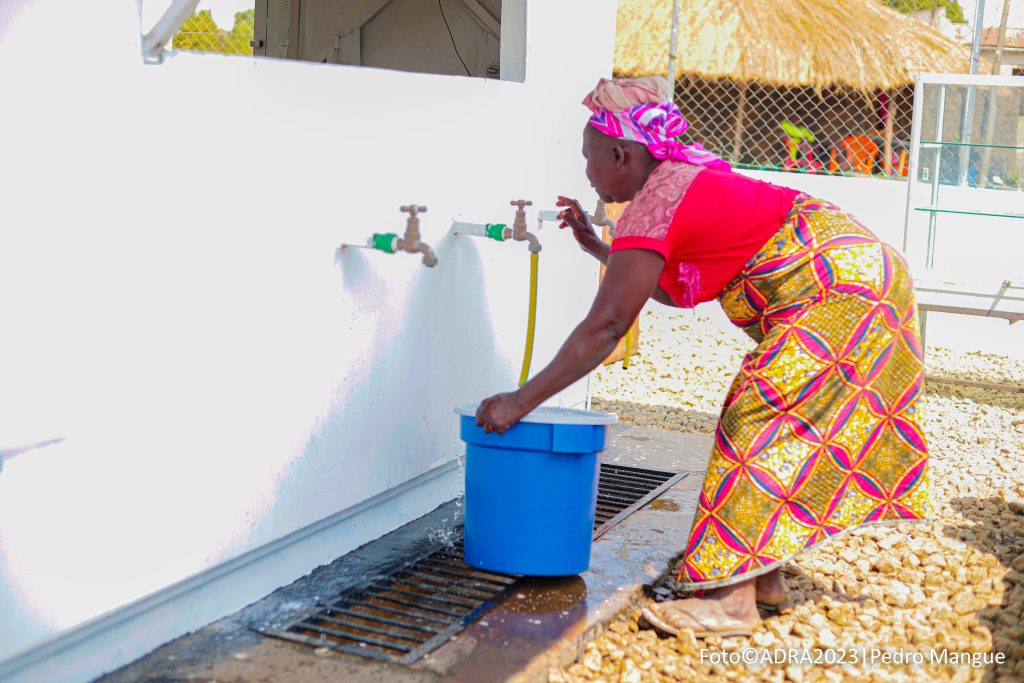
In addition to signing the memorandum of understanding between the parties (ADRA, the Seventh-day Adventist Church and the Municipality of Mocuba), ADRA also handed out certificates of participation to the 14 water kiosk operators trained by this NGO, as well as handing out nine manuals on good hygiene practices to the new kiosk operators, with a view to disseminating hygiene and sanitation messages.
With funding of 9,000,000 US dollars, the water kiosks now in operation have the capacity to supply more than 30,000 liters of drinking water every day. So far, these fountains have benefited more than 5,000 inhabitants of the CFM, Samora Machel and 25 de Setembro neighborhoods in the city of Mocuba.
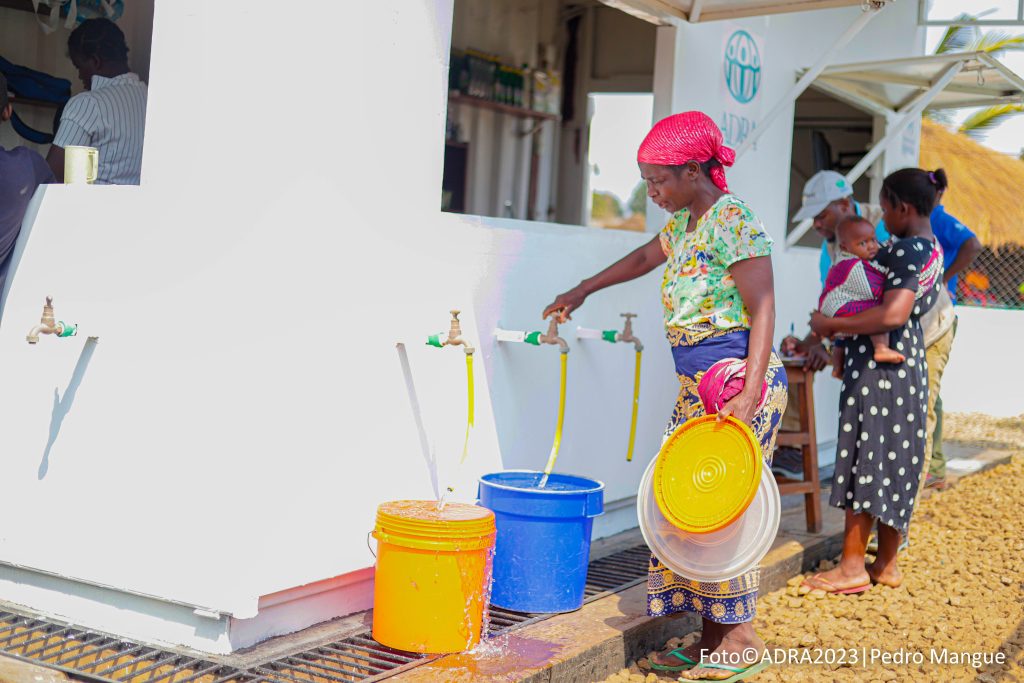
German Government Funds Project to Strengthen Response to Humanitarian Crisis in Cabo Delgado Province
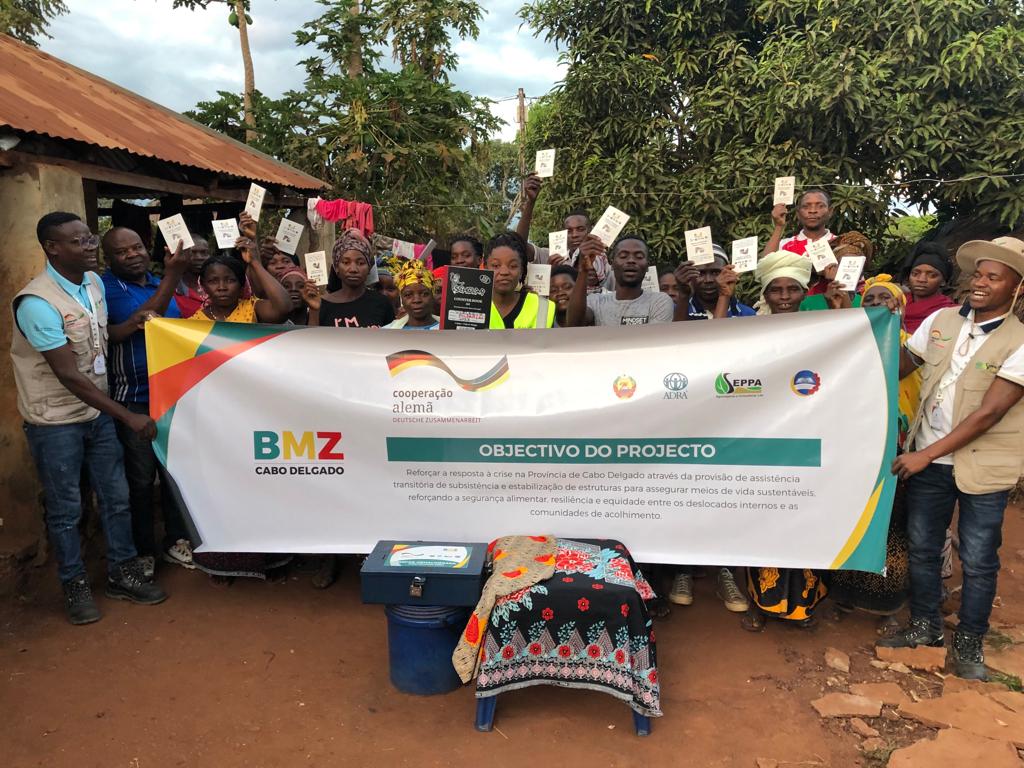
This is a project to promote peaceful coexistence, develop local disaster risk management and strengthen livelihoods for small farmers (internally displaced people and host communities in Cabo Delgado province).
Baptized with the name "Ukhaliherana", a local expression which in Portuguese means "mutual aid", the project aims to strengthen the response to the humanitarian crisis in Cabo Delgado province, through transitional livelihood support assistance with a view to guaranteeing sustainable livelihoods, strengthening food security, resilience and equity between internally displaced people and host communities.
The project is being implemented in the districts of Montepuez and Metuge in the province of Cabo Delgado, through a consortium made up of four organizations: ADRA Germany (lead organization of the consortium), ADRA Mozambique (Coordination and implementing partner), SEPPA Foundation, and the Islamic Council of Mozambique,
over a four-year time horizon (November 2022 - July 2026).
While ADRA is focused on training small local farmers in matters of agriculture and livestock, savings and revolving credit (PCR), and risk and disaster reduction (RRD); the SEPPA Foundation focuses on aquaculture, reforestation and natural resource management, committees and food mediation and distribution; and finally, the Islamic Council deals with activities to develop social cohesion and build peace in the communities covered in the districts of Montepuez and Metuge in Cabo Delgado.
In interviews with the project's beneficiaries in the two districts covered, they expressed their satisfaction with the project's interventions, even though the project's activities had just started at the end of November 2022, but they also pointed out the challenges they faced, proposed solutions and their expectations regarding the project's impact on their communities.
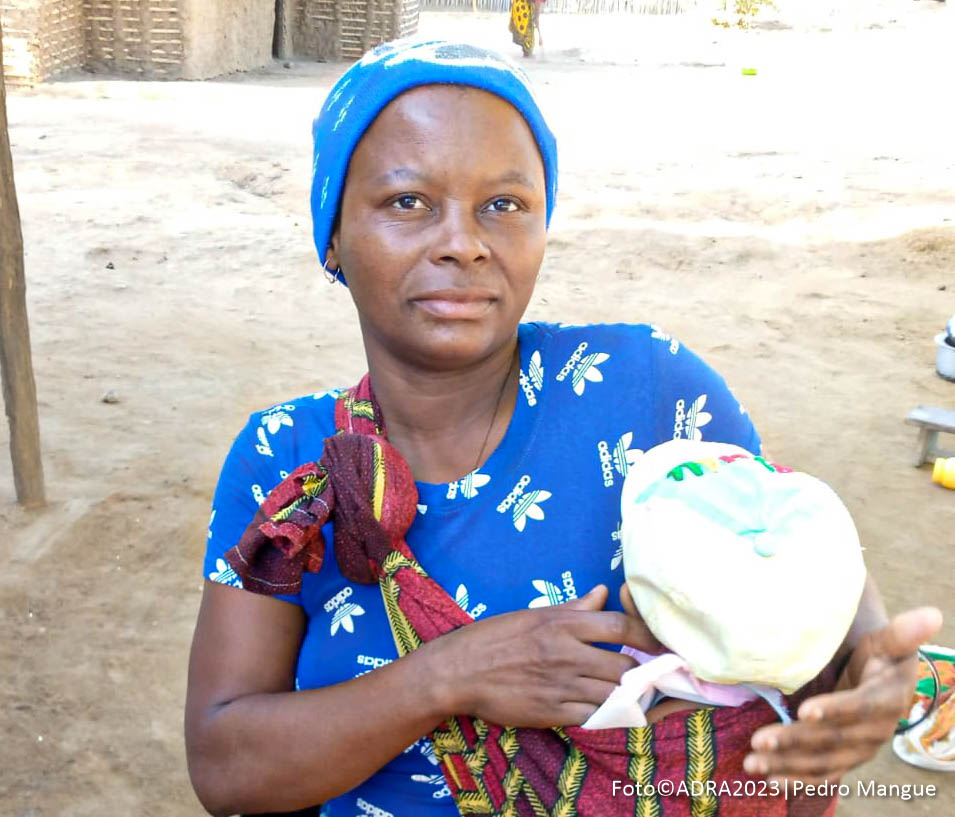
Alcinda Monteiro, who lives in the community of Nlucune, in the administrative post of Mieze, in the district of Metuge, points out that with the interventions of the Ukhaliherana project, her community has seen significant changes in terms of improving their diet:
"I'm very grateful for this project because we're learning a lot of good things. Our diet
mhas improved significantly. Today, I know how to prepare nutritious porridge based on the products we produce from our fields. I can prepare pumpkin jam for our children, and this has helped us to combat chronic malnutrition. It's true that we lack a lot of things, such as coconut, but potatoes, for example, we can produce in our fields and they are very nutritious." he emphasized.
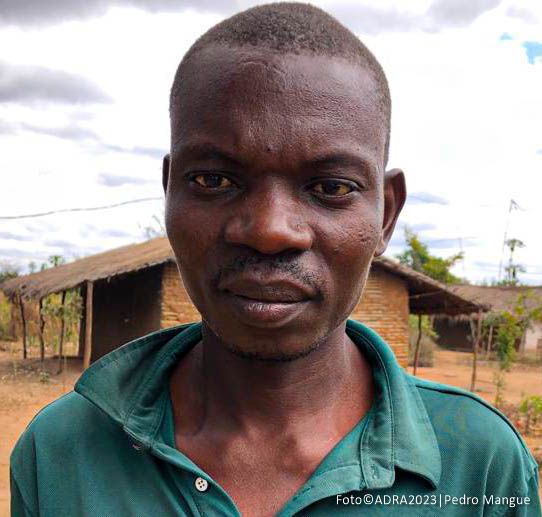
Paulino Alexandre, a small farmer and beneficiary of the project in the Montepuez district, says that the Ukhaliherana project is already boosting his life: "a of the components that are improving my life in this project is the savings and credit component. When I save my money, I have the hope of moving it. I'm a farmer, and when I need agricultural inputs such as seeds, fertilizers or insecticides, I ask for a loan from the group, and when the harvest comes I sell my products and get the money back. So the project is
improving my life," he said.
Although in the initial stages of implementation, the beneficiaries of the Ukhaliherana project are very enthusiastic about the increase in capacity and the desire to expand is even greater.
Silvério Manuel, also a farmer and beneficiary of the Ukhaliherana project in the Montepuez district, says that although savings and rotating credit (PCR) activities are a very sustainable component, the lack of equipment and new technologies to optimize cultivation has been one of his biggest barriers as a farmer and could impact the next agricultural campaign.
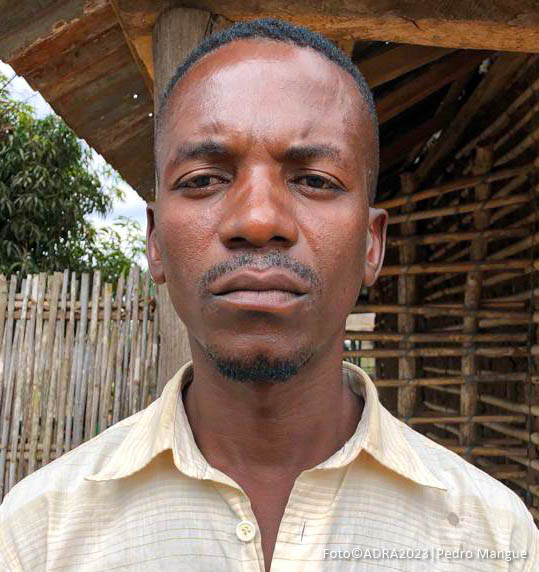
Savings and credit activities are being very beneficial to us, but we regret the lack of equipment and new mechanized production technologies. We lack the material to produce on a large scale. Our production is on a very small scale, which only serves to support ourselves, and this doesn't allow us to grow. We believe that if we had motor pumps and tractors, we could produce on a large scale and export our products." He said anxiously.
Aquaculture is one of the components developed by the SEPPA Foundation throughout this project. One of the strategies designed is to train fishermen in aquaculture.
of fresh water; provision of adequate fishing equipment for fishermen; and the active participation of fishermen in organized and inclusive cooperatives, as well as participation in governance structures, is expected.
Over the four years of implementation, the project will cover 7,000 households, of which 3,500 in the Montepuez district and 3,500 in the Metuge district, the equivalent of 35,000 direct beneficiaries. Of this group, 60% are women.
This project is funded by the German government, through the Federal Ministry for Economic Cooperation and Development (BMZ), with a budget of €2,400,000 (two million four hundred thousand euros).
MSRHP PROJECT TRAINS GIRLS AND TEENAGERS IN DRESSMAKING IN MATUTUÍNE DISTRICT, MAPUTO PROVINCE
The Matutuíne Sexual and Reproductive Health Project (MSRP), which is being implemented by ADRA Mozambique in partnership with the government of Mozambique, through ADRA Austria funds - City of ViennaThis Friday, October 26, around 19 girls from the Sekeleka Youth Club in the town of Zitundo, in the district of Matutuíne, graduated in cutting and sewing, as a basic tool for starting their economic activities.
The ceremony was attended by Her Excellency the Administrator of the Matutuíne district, Juliana Cornélio Mwitu, who, in the prelude to her speech, congratulated the graduates and reiterated the need for a continuous effort on the part of the girls who graduated from ADRA in the locality of Zitundo with a view to guaranteeing self-sustainable income generation and reducing the high levels of poverty and vulnerability in the Matutuíne district.
"Ne as the government of the Matutuíne district are very pleased to see that our girls already have the basic tools to create self-employment," he said, adding, "We want to thank ADRA Mozambique and its partners for their efforts. We can see from the sample garments made that our girls are already prepared for the market." he continued "we also want to appeal to parents and guardians to encourage your daughters never to give up on their dreams, today they can sew uniforms and sell them to schools here in the district and this will benefit them, it will allow them to continue with their studies until higher education." He appealed.
For his part, Euclides Diogo Zavala, Head of the Zitundo Administrative Post in the Matutuíne district, emphasized the girls' commitment to the activities for which they had been assigned.
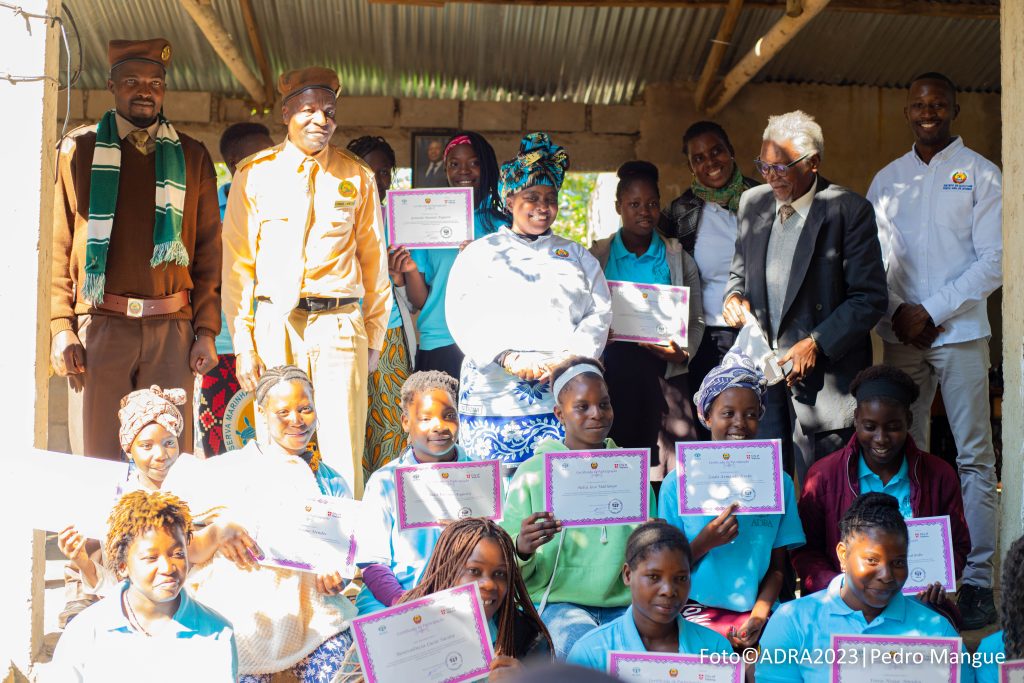
and called for a collective and individual effort from the girls in the club in order to make their business profitable and increasingly sustainable.
"We would like to greet and congratulate our girls from Zitundo
for having embraced this ADRA project and for having managed to reach this phase. Today you are already prepared, but thatthat's not all. There is now the need to continue, each and every one of youto make efforts
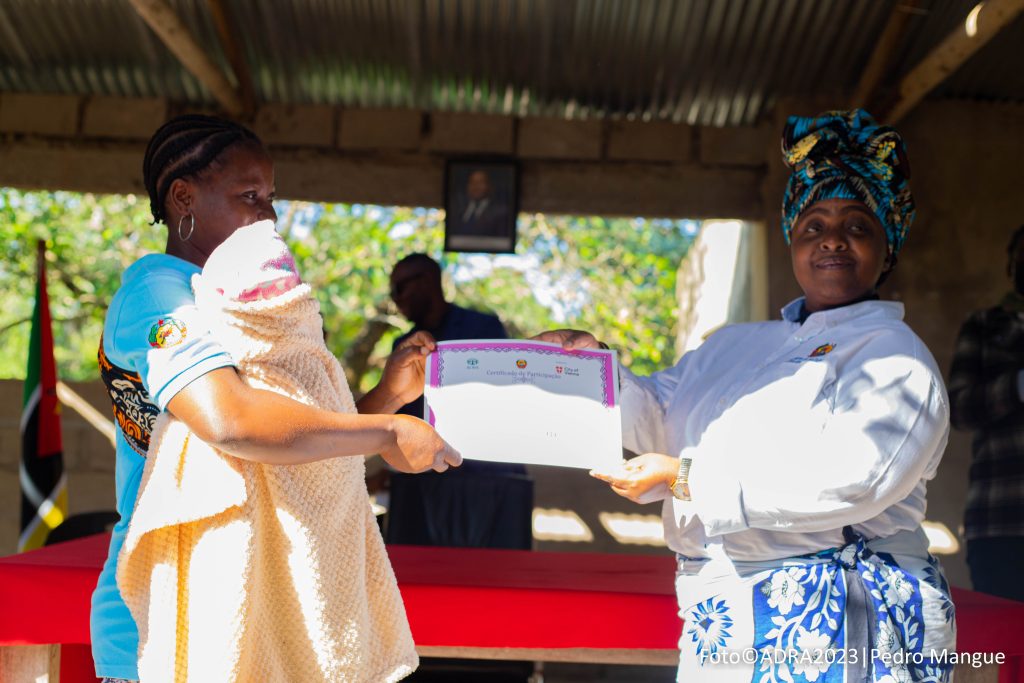
to keep your club going and make your business sustainable." He reiterated.
On the community side, Francisco Tembe, the head of the Zitundo Administrative Post, said he was thrilled with this initiative because, according to him, it was designed to reduce the various levels of vulnerability among girls in the Matutuíne district.
"I don't have enough words to express it, my heart is full of gratitude," he said emotionally, and continued, "I'm the father of one of the beneficiaries of this project, and I've noticed changes in her character since she started taking part in this initiative.Initially, my daughter had a habit of spending the night away from home, but now she doesn't go out at night, she studies and is becoming more and more focused. She already knows how to sew clothes, she's acquired the skills to earn money and that's thanks to ADRA."
Isabel Armando Tembe, one of the graduates and beneficiaries of the MSRHP project in the Matutuíne district, says she is happy to be part of this initiative and says she is already applying the knowledge she acquired during the course.
"AI gained a lot of knowledge in this project
.Qhen we went in, I didn't sI didn't know anything about sexual and reproductive health, but today I speak with knowledge and I've been sharing it with my schoolmates." She added: "We already know how to sew clothes with machines and I personally have made personal efforts to never lose the practice, part of the uniforms we have made we sell to our neighbors and they have supported us." I said.
Point out that this three-year project (2021-2024) has the main objective of contributing to access to basic sexual and reproductive health services for girls and young women, as well as establishing self-sustaining centers for them with a sustainable business model and ensuring their ability to obtain sustainable livelihoods through formal income-generating activities.
The project has been running since November 1, 2021 and ends on October 30, 2024. It has a total of 75 beneficiaries, 25 of whom are in the town of Zitundo (Sekeleka Jovem Club); 25 in the town of Madjuva (Kndlemuka Madjuva Club) and 25 in the town of Ponta de Ouro (Raparigas da Ponta Club).
Community leaders pledge to maintain peace and gender equality in Sofala
Community leaders from the districts of Gorongosa, Machanga, Chibabava, Chemba, Cheringoma and Marínguè, in Sofala province, say they are ready to maintain peace and gender equality in their communities. This assurance was given recently, as part of the reflection meetings on the role of women in participation and decision-making at community level, promoted by the "Local Development for the Consolidation of Peace in Mozambique (DELPAZ)."
Community leaders interviewed by Notícias assured that there is a need for women to participate in decision-making processes, as a way of contributing to inclusive, equitable, peaceful, green and resilient local economic development. "Women should, through facilitation of dialogue and inclusion, participate in government activities of economic planning and investment, local conflict mitigation and peace building, promotion of fair and equal access to opportunities." defended Mateus Catique, community leader of Mussicadzi, in the district of Gorongosa and added that "women have the right to protection and justice against all types of violence."
The community leader of the village of Nhango, in the town of Panja, Chibabava district, Ângela Mateus Nhome, defended the fact that women should participate in all the decision-making processes of community life because "When there is no hospital in a community, women are the most affected, since they are the ones who travel to the health center with the children, covering huge distances", and adds: "With this meeting organized by DELPAZ - Sofala, I will return to my community with more solid information and I will ensure that more women know their rights and consequently act for their well-being"he promised.
Angela's voice is echoed in the words of Moisés Magara, a community leader from the town of Mucheve, who has no doubt that everyone must influence so that women, just like men, have a captive place in a classroom, because "Everyone enjoys the same rights and opportunities, and spaces need to be created for this type of debate to take place in communities. This meeting has enriched my knowledge and will further improve the work I've been doing in the community." said Magara.
For her part, the queen of the village of Tazaronda, in the district of Gorongosa, Cinália Gerente, has called for profound changes in the community and points out that "When we call for spaces for dialog, they think we're inventing the wheel. I hope this meeting of reflection will open men's minds", and adds thatand "when, for example, a woman is raped, we acknowledge the case. When a minor is raped, we report the case to the authorities in Gorongosa. This makes men feel our power as influencers in decision-making".
On the other hand, the head of the village of Domba, Administrative Post of Nhamaze, in the locality of Canda, named João Paulo, defended the fact that women are a great contributor in various matters. "Everything is changing for good coexistence between men and women. We have to be equal. Today, women are already riding bicycles [culturally it didn't used to happen, it was only for men] in that region. We already have nurses, teachers, full of female students"he said.
Eufrásio José, régulo of Chimbue, Administrative Post of Chiramba, in the district of Chemba, taking part in one of the meetings to reflect on the role of women in participation.
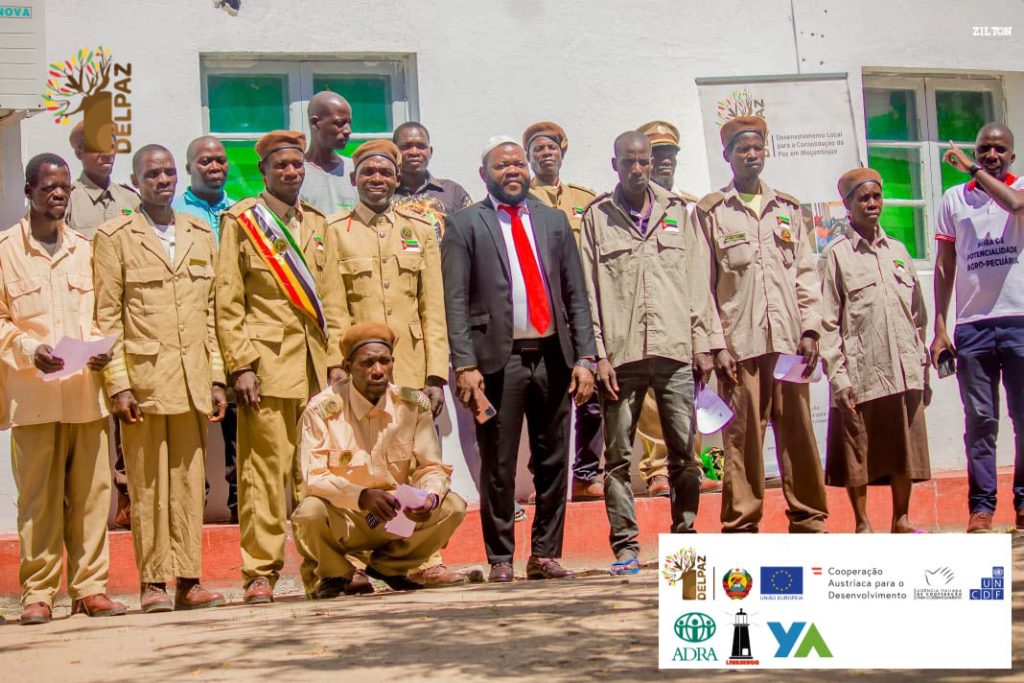
and decision-making at the local community level, said that the inclusion of women in decision-making processes had long since ceased to be a novelty in Chimbue, since,
"we have included women in all decision-making processes. In every consultative meeting we hold, women are there and have the right to speak".
Eufrásio José assured that, after the reflection meeting promoted by DELPAZ - Sofala, he will sensitize the community to include women in decision-making processes: "I promise to promote gender equality at every meeting I go to at EU level."
The reflection meetings on the role of women in participation and decision-making at community level, promoted by DELPAZ - Sofala, aimed, among other things, to gather experiences with community leaders on the inclusion of women in various community development contexts and to reflect on their importance in decision-making; to analyze, through the leaders' opinions on
the importance of involving women in decision-making; clearly demonstrating the role of women in community development; and presenting the commitment of the Mozambican government to ensure a reduction in all forms of violence against women.
DELPAZ is a Mozambican government program co-financed by the European Union and supported (in Sofala) by Austrian Development Cooperation, in 14 districts most affected by the conflict, of which six (6) are in Sofala province, five (5) in Manica province and three (3) districts in Tete province.
DELPAZ is implemented by the United Nations Capital Development Fund (UNCDF) and its partners in Sofala, Manica and Tete; the Italian Agency for Development Cooperation (AICS) and its partners in Manica and Tete; the Austrian Development Agency (ADA) and its partners in Sofala: ADRA/Livaningo and Young Africa; and the Sofala Provincial Executive Council (CEPS).
AVIR PROJECT PARTICIPATES IN AGRIBUSINESS FAIR IN THE CITY OF QUELIMANE, ZAMBÉZIA PROVINCE
This is the project Advancing Inclusion and Resilience in Zambezia Province - AVIR, which is being implemented by ADRA, Livaningo and NLR, in the districts of Mocuba, Ile and Lugela, in Zambezia province, which this Monday, the 15th of this month, took part in the agribusiness fair, as part of the 12th National Meeting of Municipal Authorities, which took place in the city of Quelimane, chaired by His Excellency the President of the Republic of Mozambique, Filipe Jacinto Nyusi.
The event takes place under the slogan: "Urbanization: a Priority for Sustainable Municipal Development"In order to promote national and provincial agricultural activity in particular, the provincial government of Zambézia encouraged the participation and representation of all the districts in the province, with a view to demonstrating their agricultural potential and promoting the exchange of experience between rural producers.
ADRA Mozambique, in particular, through the beneficiaries of the AVIR project, and representing the Lugela district, promoted the exhibition and marketing of tubers (cassava, yams (madumbe) and sweet potatoes); cereals (maize); legumes (sesame and peanuts); fruit (bananas, oranges and lemons), including sugar cane and pumpkin.
The President of the Republic, for his part, stressed the importance of providing technical assistance to local producers, pointing out that it should not be ignored that the largest source of family income is based on agriculture.
Point out that the aim of the AVIR project is to strengthen the capacity of women, young people and people with disabilities to demand and influence the provision of local public services and to ensure that they are respected, valued, visible and actively involved in processes.
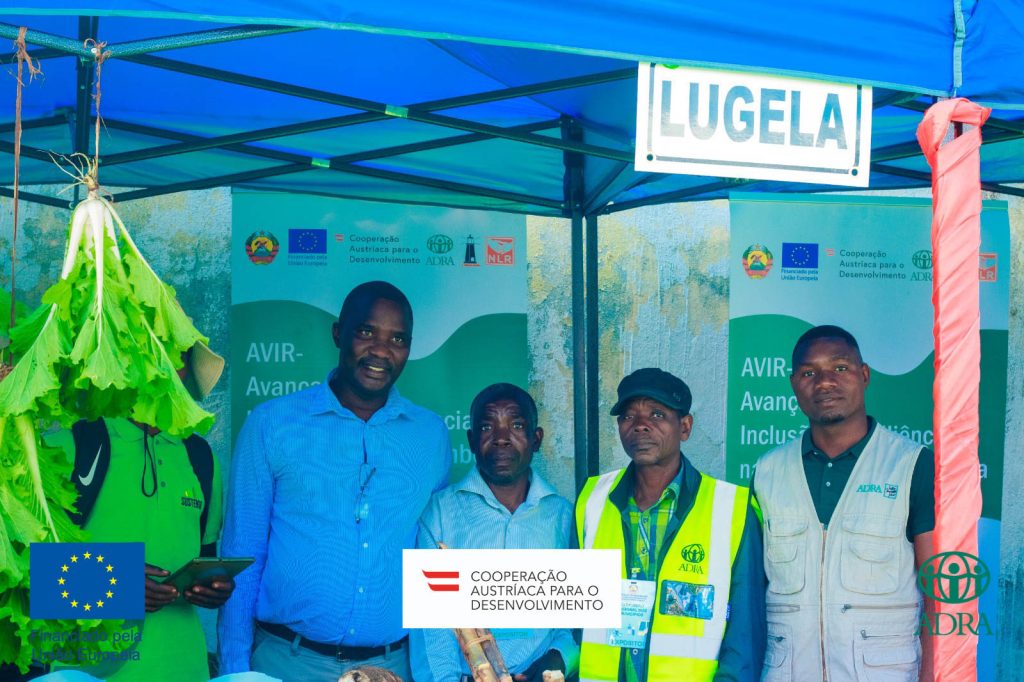
social and economic and represented in public decision-making spaces at district, provincial and national level.
This publication has been produced with the support of the European Union
and the Austrian Development Agency. The contents of this publication are the sole responsibility of ADRA and can in no way be taken to reflect the views of the European Union and the ADA.
Girls' Clubs in Matutuíne District Benefit from Training Kits and Start-up of Economic Activities in Maputo Province
These are three girls' clubs from the towns of Zitundo, Madjuva and Ponta de Ouro, in the district of Matutuíne, which were set up as part of the Matutuíne Sexual and Reproductive Health Project (MSRHP), which is implemented by ADRA Mozambique. From the 20th to the 21st of this month, they received hygiene kits, training and the start of economic activities.
In all, 75 girls benefited, 25 of them from the Zitundo - Youth Sekeleka Club;
25 in the town of Madjuva - Kendlemuka Madjuva Club; and 25 in the town of Ponta de Ouro - Raparigas da Ponta Club.
Among them, the Sekeleka Joven Club in Zitundo benefited from 3 sewing machines, 3 irons, 8 units of machine oil, 18 measuring tapes, 26 rolls of thread, 4 boxes of chalk, 15 boxes of pins, 15 interlining, 7 rolls of fabric, 12 scissors, 300 zips, 20 boxes of needles, 400 buttons, 25 capolanas, 5 packets of sanitary towels, 2 boxes of washing powder, a box of condoms, 6 rulers and 1 packet of markers.
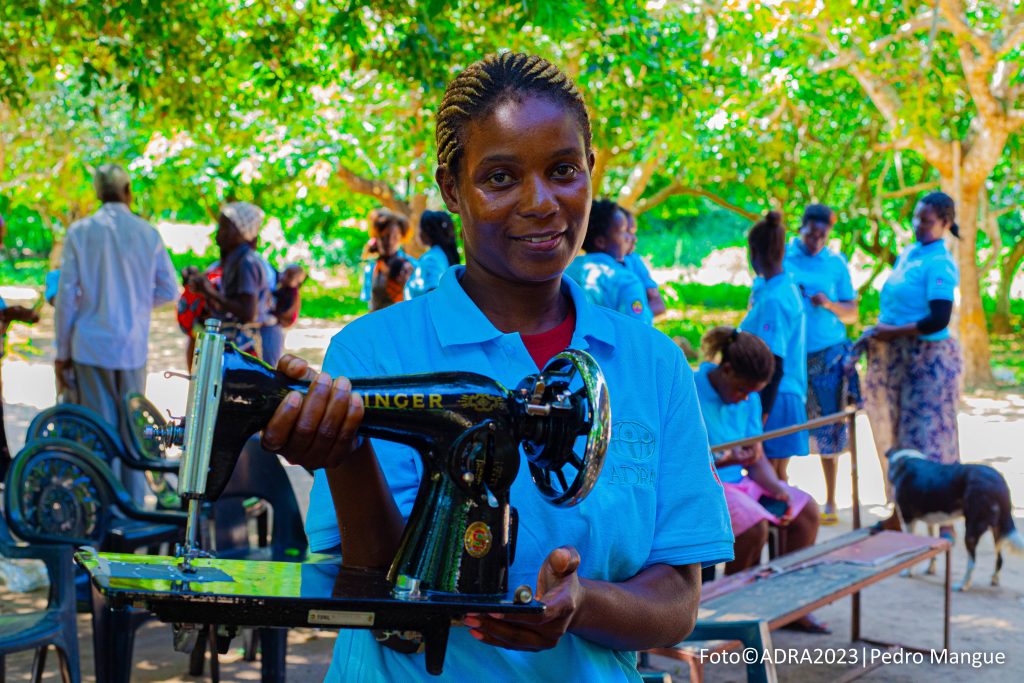
The Kendlemuka Madjuva Club, from the town of Madjuva, received 5 packs of sanitary towels, 1 box of condoms, 10 packs of toilet paper, 5 boxes of washing powder, two boxes of broiler chicks for rearing (100 units in each box), 10 bags of A1 feed, 10 bags of A2 feed, two cages, 4 feeders, 4 drinkers, 20 bags of sawdust, 3 bags of cement, and vitamin and antibiotic kits for the chicks.
Finally, the Raparigas da Ponta Club, from the town of ponta de Ouro, received 2 bales of used clothes for sale, 30 mucumes, 150 scarves and 250 capolanas,
10 packs of toilet paper, 2 packs of liquid soap, 6 boxes of dish soap, 5 boxes of washing powder, a box of condoms and 5 packs of sanitary towels.
After months of training in Sexual Reproductive Health, business leadership and technical-vocational training in various areas of knowledge, the girls from the three clubs set up by ADRA in Matutuíne say they feel properly trained and prepared to face the challenges and competitiveness of the business and job market.
"We're very happy and impressed at the same time, because we've been able to see, through ADRA's support, that it's possible to occupy the girl and win
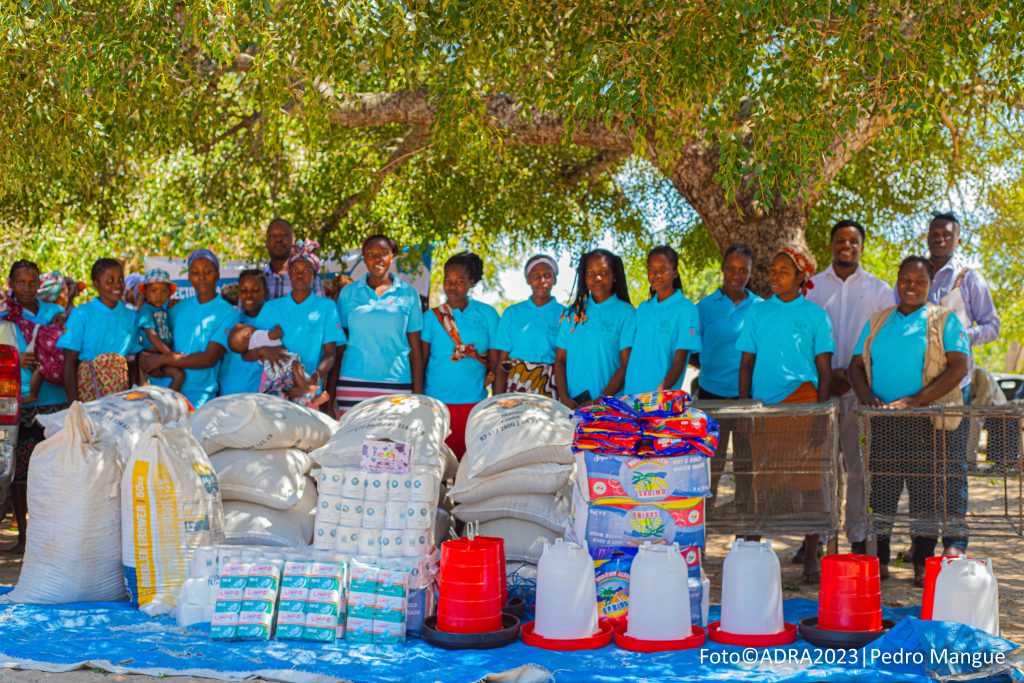
a The problem of unemployment is that we believe that a well-run business will not only improve our income, but will also employ other teenagers. Therefore, we would like to take this opportunity to ask for more projects to develop our group and occupy more teenagers, because the job market is not enough to satisfy the demand, thank you very much." said Sandra José Machava, a beneficiary of the MSRHP project in Matutuíne.
Euclides Zavala, head of Zitundo, thanked ADRA Mozambique for the interventions made in the Matutuíne district, and called on the local community to make good use of this assistance.
"We as a government have witnessed the interventions that ADRA has made in our communities, and as a government, this is one of the ways we intervene in the community and support those who need it, is through partnerships with organizations like ADRA and others.
"Right now, we want to appeal to our girls in Zitundo to
make use of this business in a sustainable way. We want to appeal to you not to worry about making a profit, but to make our activities sustainable for the girls' own development.." I said.
On the other hand, Mrs. Maria Salomão Matse, representing the community of Zitundo, and by conscience, the mother of a beneficiary of the MSRHP project in Matutuíne, points out that this gesture by ADRA will reduce the vulnerability of girls in that region, and will stop many from getting involved in early relationships.
"We in the Zitundo community have nothing but immense gratitude for ADRA for helping us to empower our daughters. We thank you because some of these teenage girls have already finished their secondary education, so the fact that they could have been trained to develop their own businesses will reduce their vulnerability and will make them reduce their early involvement in relationships with married men, thank you very much."
Given the current scenario, with the kits distributed by ADRA Mozambique, the girls from the three MSRHP clubs in Matutuíne will be able to respond to the current economic challenges, empowering girls and reducing their vulnerability, and consequently re-educating them about the risks of HIV infections in the Matutuíne district.
ADRA SUPPORTS FLOOD VICTIMS IN BOANE DISTRICT
More than 176 families from the town of Gueguegue, in the district of Boane, benefited from ADRA's emergency food assistance last Saturday, the 18th of this month.
On a date when the Seventh-day Adventist Church (IASD) celebrates Global Adventist Youth Day, this intervention deserved a special and solemn moment, preceded by prayers and songs in gratitude to the Creator (God).
The event was attended by several Adventist youth from Maputo province; representatives of the Mozambican Mission Union
of the Seventh-day Adventist Church; President of Mission-South, Dom Tomo; pastors and leaders representing various departments of the IASD;
in addition to the representative of her Excellency the Administrator of the Boane district, as well as the management and technical team of ADRA Mozambique.
Part of this assistance is a kit of non-perishable food products, consisting of 50 kg of rice; 10 kg of beans; 4 liters of oil; and 1 kg of salt, which have been distributed to each family.
Point out that this intervention is part of ADRA Mozambique's National Emergency Management Plan (NEMP).
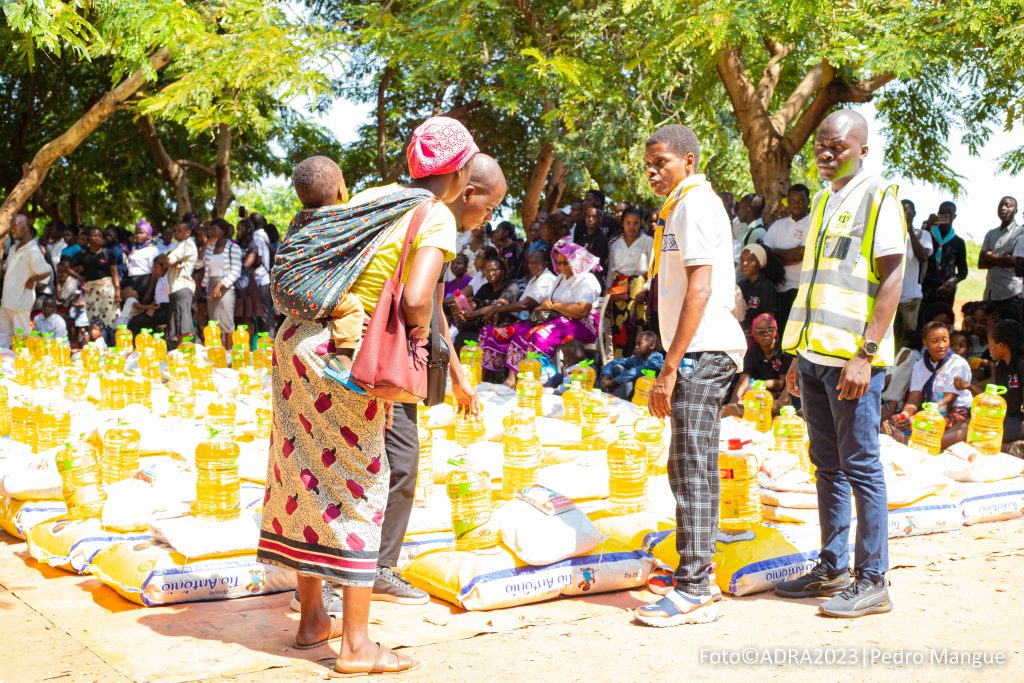
CYCLONE FREDDY KILLS 53 AND LEAVES MORE THAN 211,784 PEOPLE COMPLETELY HOMELESS IN ZAMBEZIA PROVINCE
Tropical Cyclone Freddy, which entered the Mozambican channel for the second time last Sunday, hitting the central part of the country, claimed 53 lives and left more than 211,784 people homeless in Zambezia province.
Of the twenty districts hit by the cyclone, the districts of Namacurra and Maganja da Costa are considered to be the worst affected, with a total of 78,395 and 65,875 people affected respectively.
According to data shared by the National Institute for Disaster Management (INGD), more than 18,174 houses were totally destroyed and 22,978 partially destroyed as a result of the phenomenon.
In education, more than 1,468
classrooms were completely destroyed, resulting in the destruction of another 540 schools, and affecting around 115,871 students and 2,325 teachers.
The health sector is also one of the worst affected, with 50 health units affected, which could jeopardize the spread of water-borne diseases such as cholera, amoebiasis and others.
In agriculture, around 191,562 hectares of production areas were affected and a further 20,927 hectares of crops lost.
ADRA Mozambique has activated its National Emergency Management Plan (NEMP) to alleviate the impacts of the phenomenon in Zambezia province.
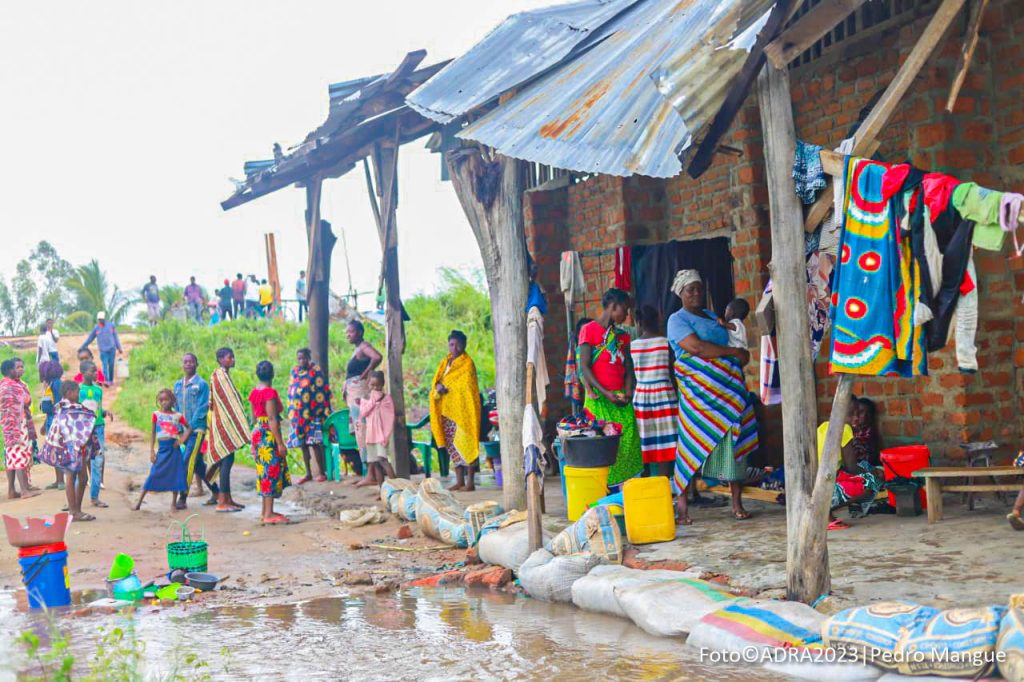
Traces of Cyclone Freddy: Family homeless in Munawalate, Vilanculos district
Mr. Armando Johane Comé, 42, is one of those affected by Tropical Storm Freddy, in the town of Munawalate, Vilanculos district, in Inhambane, "I've lost everything!"
Mr. Armando Johane Comé lives in the town of Munawalate, with a household made up of five people, including himself (head of the family), his wife and their three children, one boy and two girls.
Armando tells us about the drama he and his family experienced in the early hours of February 25th, when Tropical Cyclone Freddy hit.
"It was around zero to one o'clock in the morning, on February 25th, that suddenly there was a very heavy rain accompanied by thunder and lightning, and our house started to leak, then a
grande windstorm, our house couldn't withstand it, the sheets scattered, and the whole house fell down!"
Mr. Armando tells us that as soon as his house collapsed in the middle of the night, his biggest concern was trying to rescue the children who were sleeping inside another house, "Thank God we managed to escape alive, nobody was hurt and nobody died. As soon as we saw the house down, I ran to rescue the children who were sleeping in another house."
Two houses made of local materials were unable to withstand the fury of Cyclone Freddy. Mr. Armando was forced to shelter his family in one of the reception centers in the town of Munawalate.
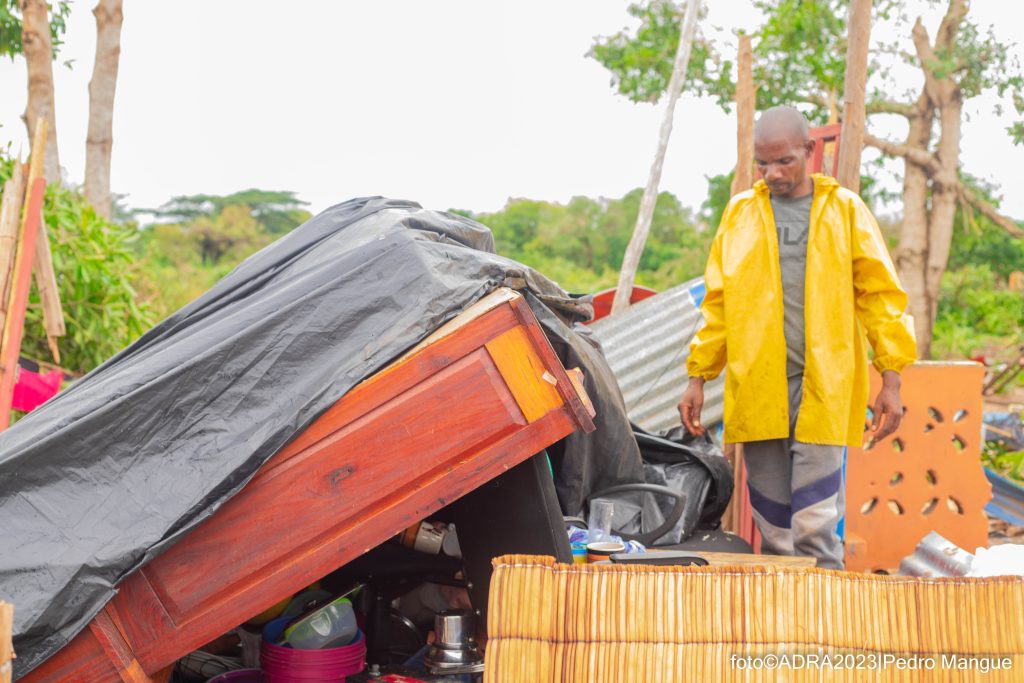
"Nthat early morning, I ran pto shelter my children and my whole family at my brother's house, but at the moment my whole family, together with my wife, are in shelter.
nthe Munawalete reception center, and I sleep here so I can control our property! While I try to build a little house next door so I can sleep."
ADRA Is Restoring 35.17 hectares of Mangroves in the District of Maganja da Costa, Zambezia Province as part of the ZIREF project
In this first phase, the process of replanting 1.7 hectares of 1,000 mangrove seedlings is underway in the community of Nanene, Administrative Post of Maganja-Sede, and it is expected that, by the end of the project, 35.17 hectares of 19,600 seedlings will have been restored. The main species to be replanted are: Ceriops tagal, Bruguiera gymnorhiza, Heritiera littoralis and Avicennia marina.
This action stems from the fact that
Many studies point to the extinction of the coastal forest ecosystem in Mozambique. And some of the main factors contributing to this threat of extinction, according to the 2016 Environmental Governance Report, are: a) urban sprawl; b) demand for firewood, charcoal and piles; c) contamination of estuaries by liquid waste; d) in addition to natural phenomena which in turn exert another type of pressure on these coastal ecosystems.
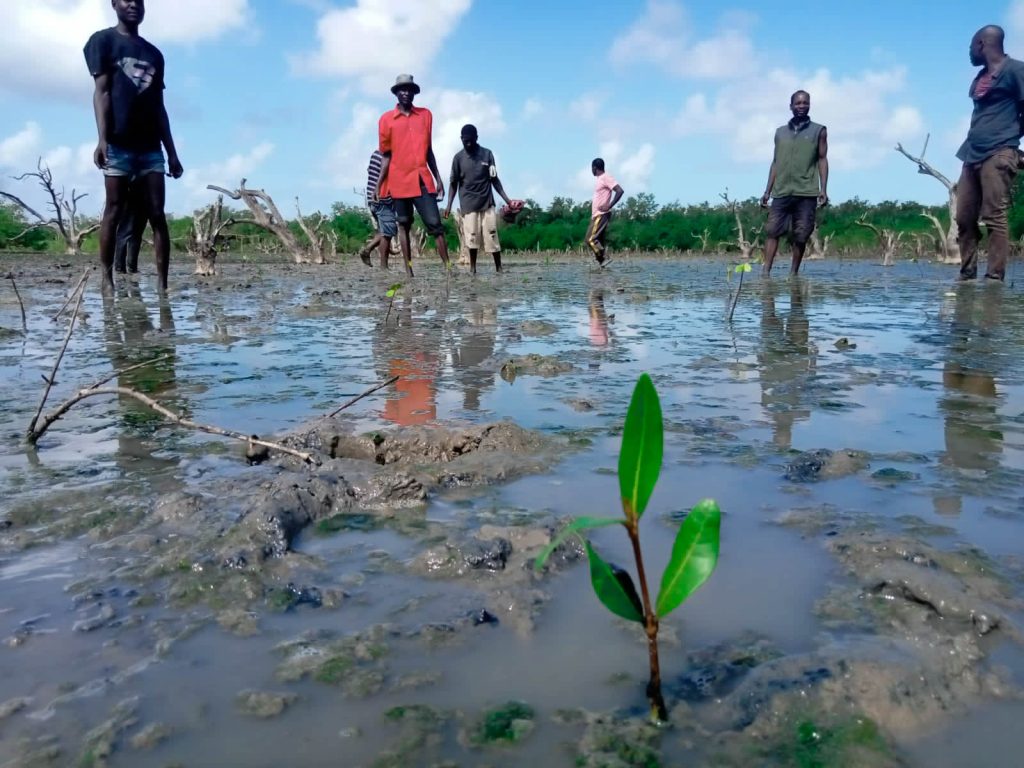
According to ADRA Mozambique environmentalist Alexandre Fumo, four species of mangroves have been identified in the localities of Nanene and Comlene, in Maganja da Costa, most of which are cut down by local communities for domestic purposes.
"So far, we have identified four species of mangrove plants: Ceriops tagal, Bruguiera gymnorhiza, Heritiera littoralis and Avicennia marina; in the areas observed, the Avicennia marina species was the most dominant. Traces show that local communities harvest these plants for domestic purposes such as making stakes for building houses, producing firewood and charcoal for domestic consumption and sale, as well as for medicinal purposes."
It is in this context that the Zambézia Inclusive and Resilient Food project
Security Project (ZIREF), underway in the districts of Maganja da Costa and Mocuba, ADRA is developing a joint and participatory community plan for the recovery and management of mangrove trees, by raising awareness among communities, discouraging them from felling and destroying mangrove forests and replanting them.
"Our main priority at the moment is to raise awareness among communities and discourage them from logging coastal ecosystems, as well as encouraging them to restore them, because logging brings serious environmental consequences and damage, as well as leaving the communities themselves in a state of despair.munities that are increasingly prone to flooding and more vulnerable to climate change." ssaid the ADRA technician.
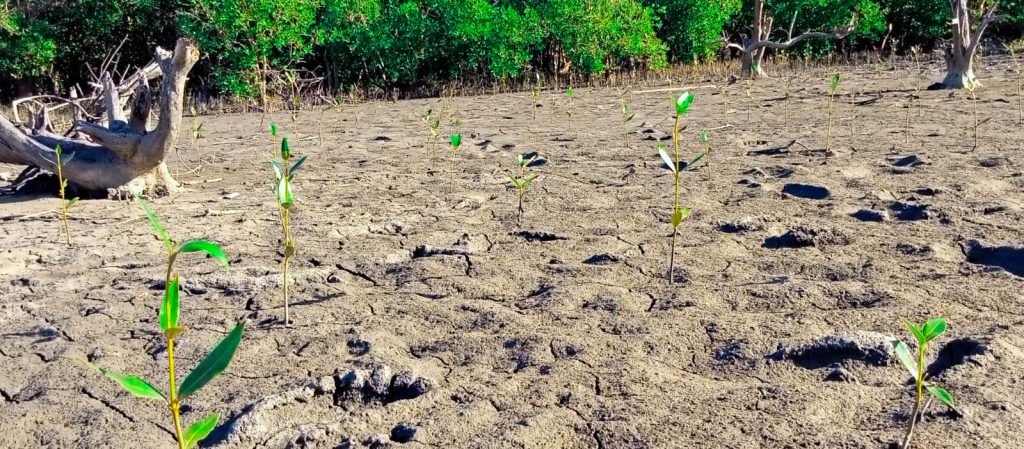
For Fumo, in addition to evidence of plant cutting by the communities, it was possible to observe the natural degradation of the ecosystem. This degradation is due to the accumulation of factors such as hydrological changes, lack of connectivity and resilience after anthropogenic invasion, more intense winds and rains resulting from climate change, among other factors.
According to the technician, for this ADRA intervention,
meetings and simulations have already been held with eighty community leaders who are members of the Natural Resources Management Committees (CGRN ) and Risk Reduction Committees (CRR ); and meetings have also been held with the Directors of the District Planning and Infrastructure Service (SDPI) and the District Economic Activities Service (SDAE) in the Maganja da Costa District, who have shown interest in this intervention.
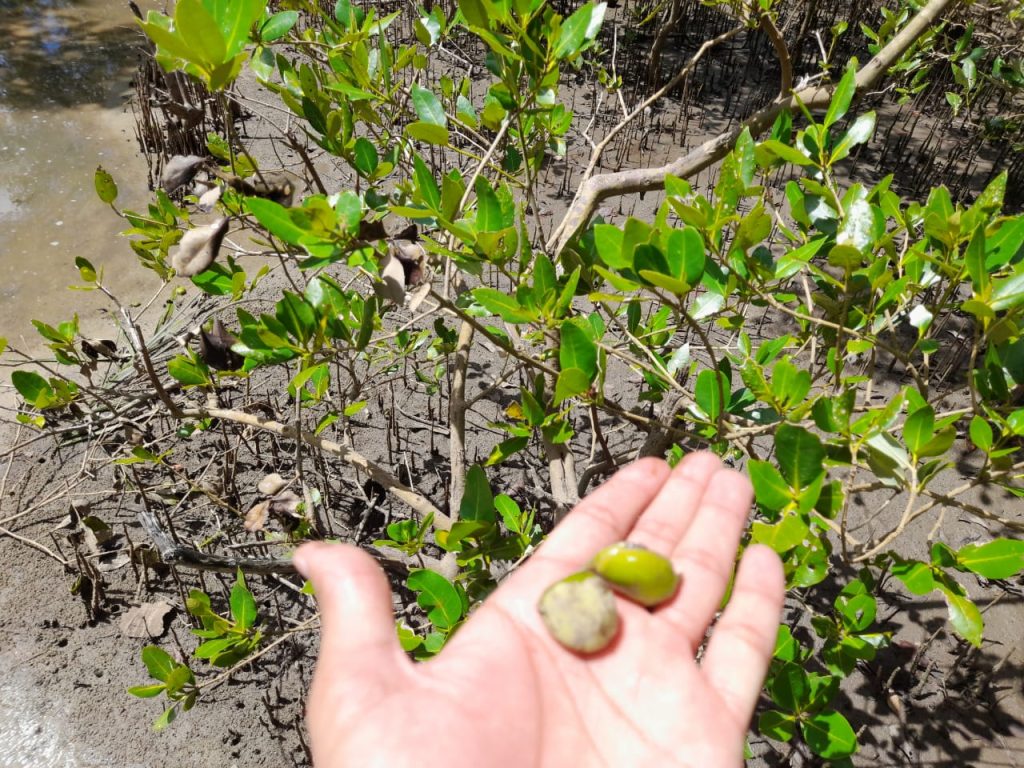
In the meantime, the SDPI, as well as expressing its satisfaction with the restoration initiative, has also highlighted the scarcity of resources and alternative means as part of the factors that make it impossible for the government to carry out these activities, "We have four employees who deal with environmental issues, but we don't have motorcycles for them to visit the camp. What's more, we don't have any alternative means to help us protect the mangrove, which could include the introduction of stoves
ecolThis could be done in a logical and efficient way to reduce the amount of firewood and charcoal exploited by the communities or to introduce a program to sell carbon credits." said Jamal Aberson, Director of SDPI at Maganja da Costa.
The three-year ZIREF project (2021 and 2024) is funded by the Canadian FoodGrains Bank and is currently being implemented jointly by ADRA Mozambique in partnership with its counterpart ADRA Canada.
The Campaign: Every Child. Everywhere. Lugar na Escola produces a video the rights of the child, in Cabo Delgado
Floods affect more than 6,478 people in Boane district, Maputo province
ZIREF project: Beneficiaries share experiences and learnings from the school in Machamba do Camponês
ZIREF Project: Restoration of the Nanene Mangal in Zambezia province
It's helping to break the cycle of poverty
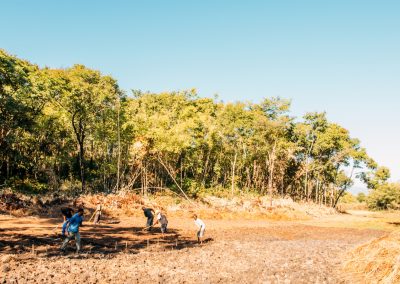
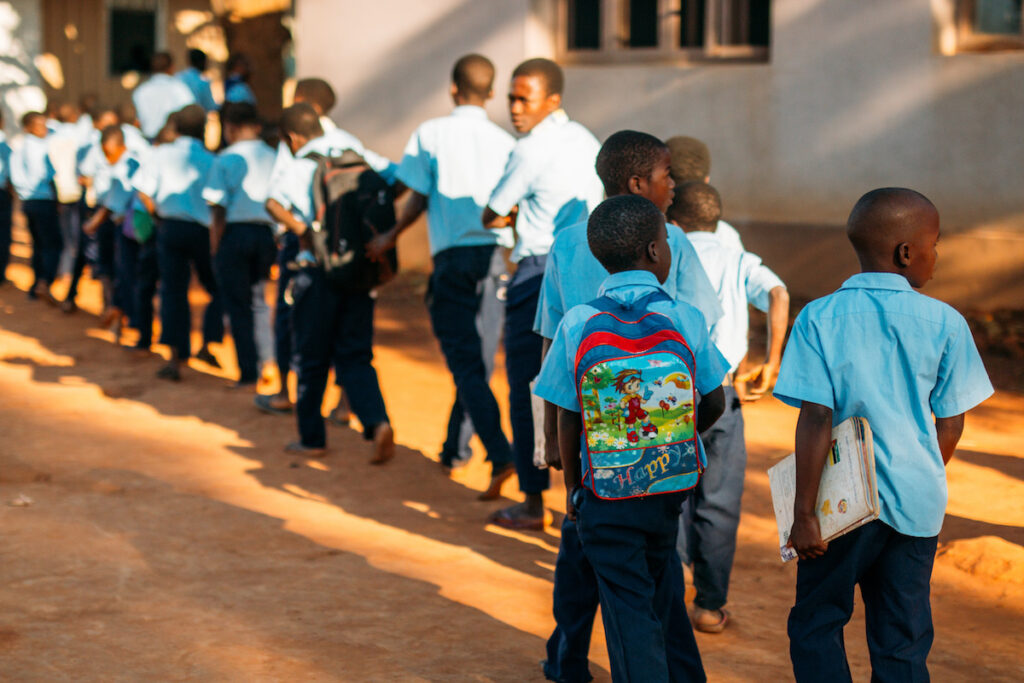
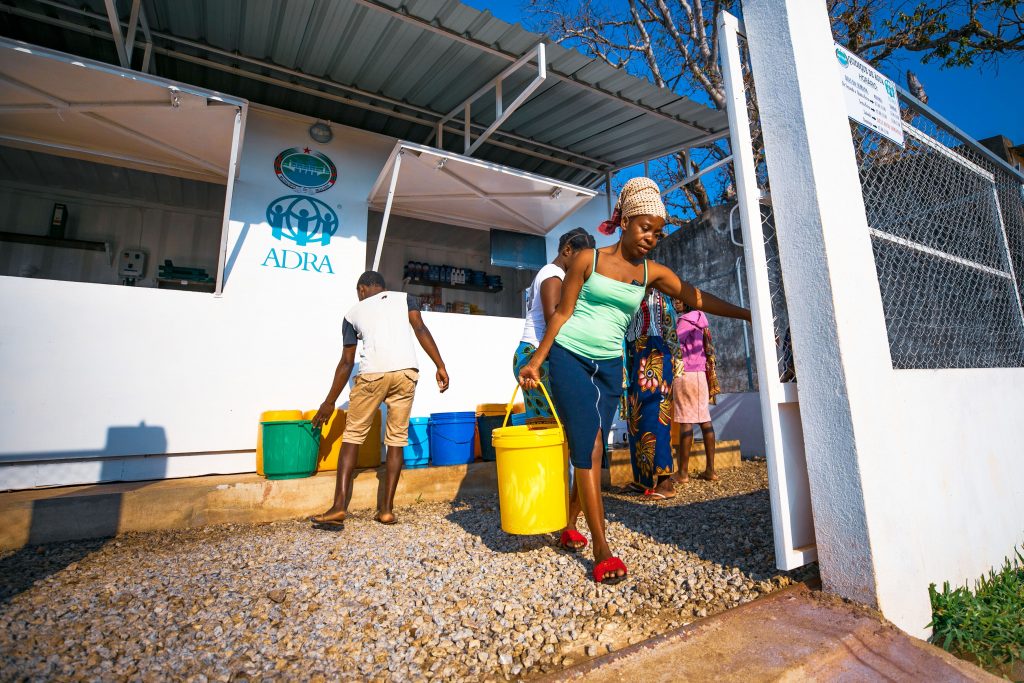
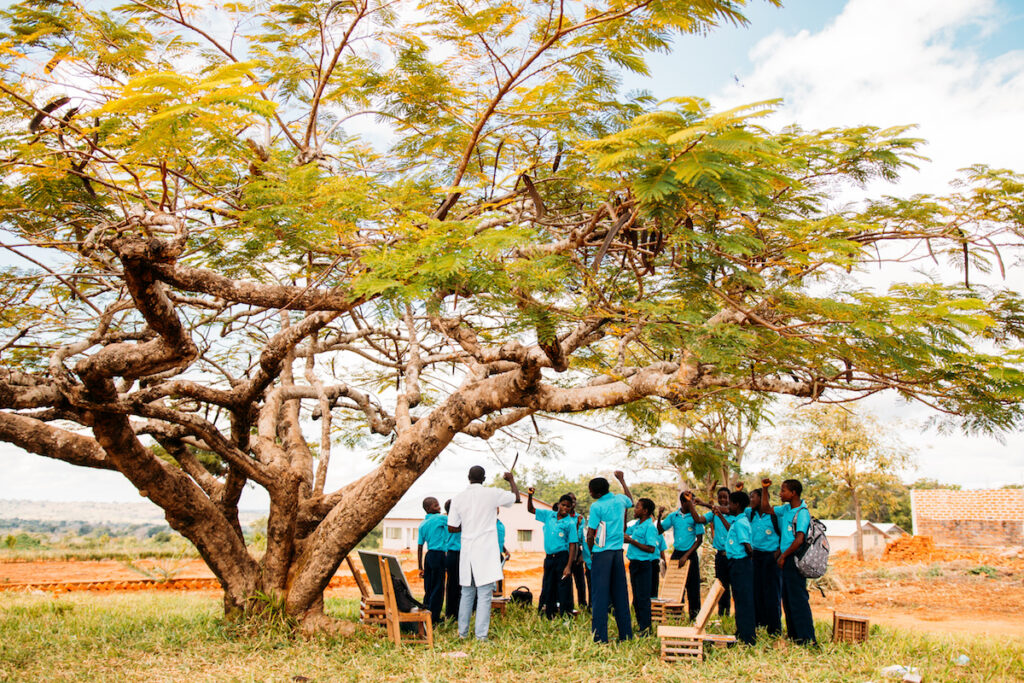
Lorem ipsum dolor sit amet, consectetur adipiscing elit. Ut elit tellus, luctus nec ullamcorper mattis, pulvinar dapibus leo.
ADRA contributed to the country's national education expansion plan by implementing a wide based curriculum and school infrastructure development in resuscitating a mission station, which had been destroyed during the civil war. ADRA has improved the level of education from grade 5 primary to grade 9, a secondary level, where a 100% pass rate was attained for two consecutive years at grade 7th.
520
Beneficiaries
The enrolment of the students in the formal sector increased from 263 in 2013 to 467 in 2016 (within 3 years) and 14,800 adult literacy beneficiaries from a target of 9,000. Additionally, 7,402 farmers graduated from a 3 years adult literacy training program and 13,712 were trained in business literacy using the REFLECT methodology.
In order to ensure the sustainability of orphans and vulnerable children, in a recent terminated project in Zambezia province 60 junior farmers clubs (JFC) were created and formed, composed of 30 to 40 children each with ages between 6-15 years. They were trained in matters of life skills which comprise training in agriculture, home garden and child rights, education, step family and support in obtaining certificates of birth registration.

